
Deutsch-Chinesische Enzyklopädie, 德汉百科
 *Track and field athletics
*Track and field athletics
 4x100 m Woman
4x100 m Woman
 *Track and field athletics
*Track and field athletics
 4x400 m Woman
4x400 m Woman
 Germany
Germany

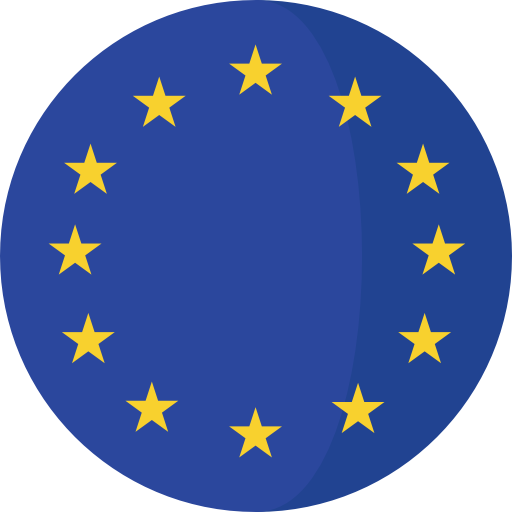 European Union
European Union
 History of the European Union
History of the European Union

 European Union
European Union
 *Founding states
*Founding states

 Geography
Geography

 Geography
Geography
 ***IMF Developed countries
***IMF Developed countries
 IMF Developed countries
IMF Developed countries
 IMF Developed countries
IMF Developed countries
 TOP2
TOP2
 Leichtathletik-Weltmeisterschaften
Leichtathletik-Weltmeisterschaften
 2001 Edmonton
2001 Edmonton
 Leichtathletik-Weltmeisterschaften
Leichtathletik-Weltmeisterschaften
 1997 Athens
1997 Athens

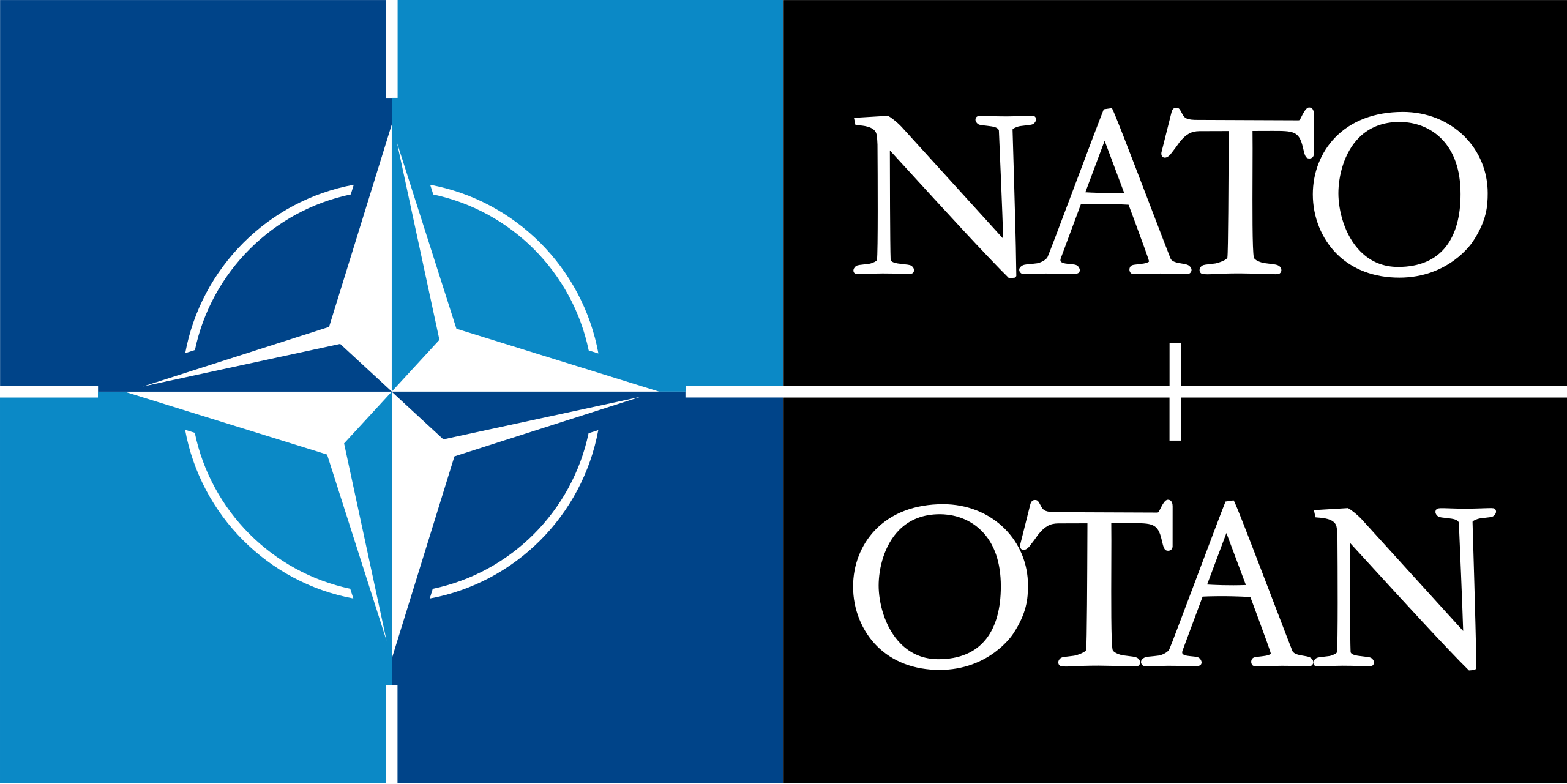 Mitglieder der NATO
Mitglieder der NATO

 Party and government
Party and government
 Group of the twenty most important industrial and emerging countries
Group of the twenty most important industrial and emerging countries

 Party and government
Party and government
 Group of Seven,G7
Group of Seven,G7

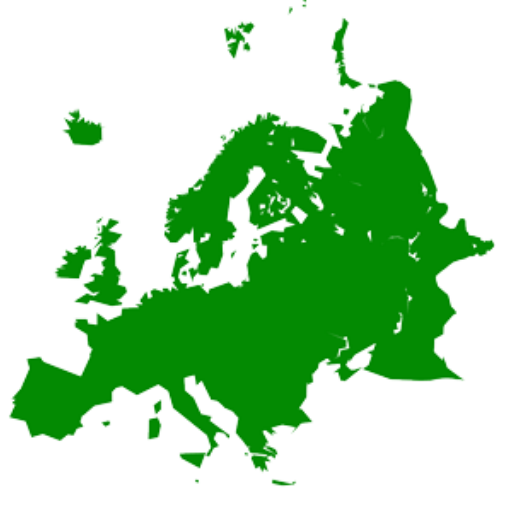 States of Europe
States of Europe
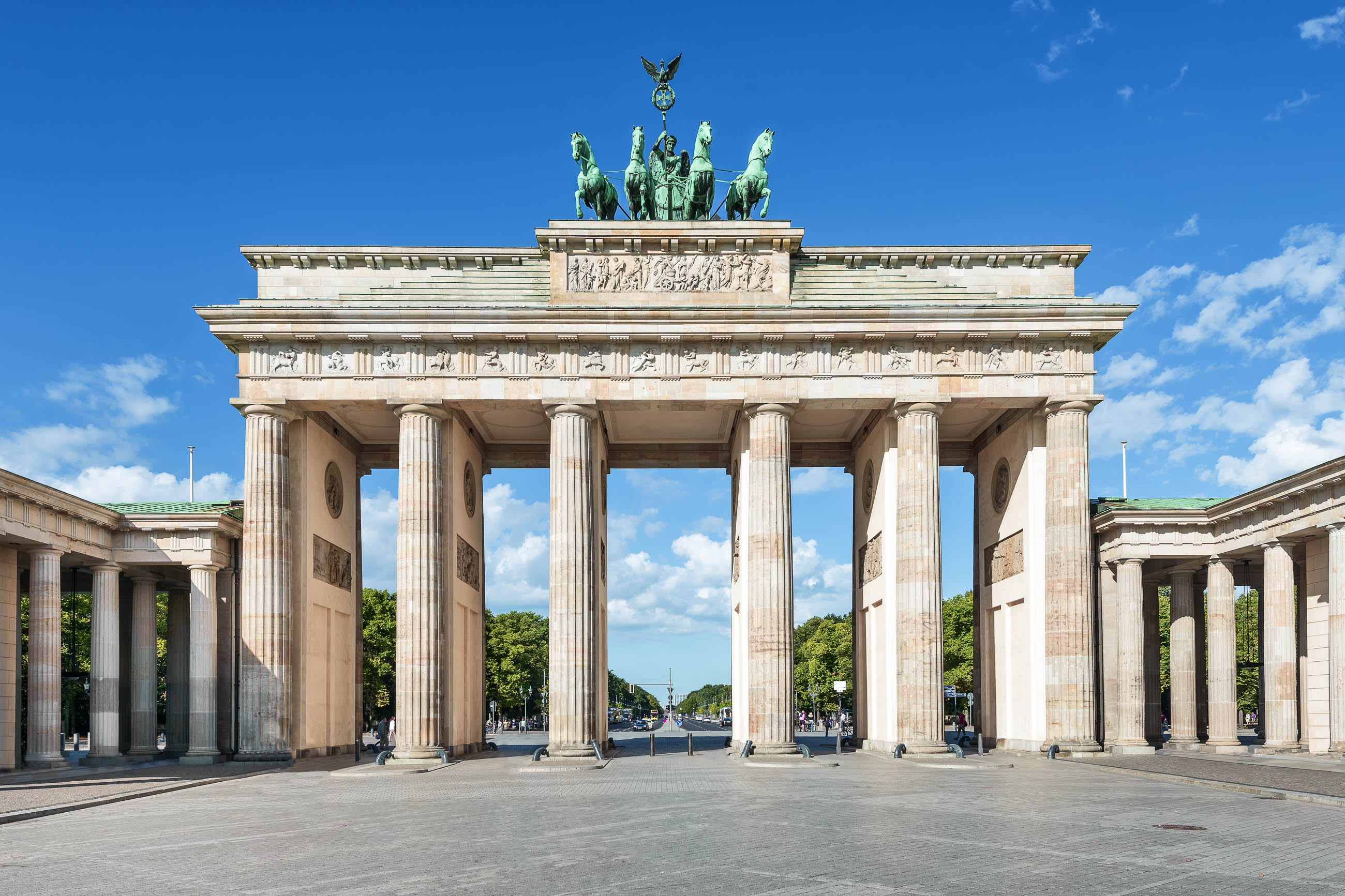
德意志联邦共和国(德语:Bundesrepublik Deutschland、![]() 发音(帮助·信息))简称德国(德语:Deutschland)[参 7],是一个位于欧洲的联邦议会共和制国家,国家元首为联邦总统,政府首脑为联邦总理。它由16个联邦州组成,首都与最大城市为柏林。其国土面积约35.7万平方公里,南北距离为876公里,东西相距640公里,从北部的北海与波罗的海延伸至南部的阿尔卑斯山[参 8]。气候温和,季节分明。德国人口约8,180万,为欧洲联盟中人口最多的国家,也是世界第二大移民目的地,仅次于美国[参 9]。
发音(帮助·信息))简称德国(德语:Deutschland)[参 7],是一个位于欧洲的联邦议会共和制国家,国家元首为联邦总统,政府首脑为联邦总理。它由16个联邦州组成,首都与最大城市为柏林。其国土面积约35.7万平方公里,南北距离为876公里,东西相距640公里,从北部的北海与波罗的海延伸至南部的阿尔卑斯山[参 8]。气候温和,季节分明。德国人口约8,180万,为欧洲联盟中人口最多的国家,也是世界第二大移民目的地,仅次于美国[参 9]。
在50万年前的旧石器时代晚期,海德堡人及其后代尼安德特人生活在今德国中部。自古典时代以来各日耳曼部族开始定居于今日德国的北部地区。公元1世纪时,有罗马人著作的关于“日耳曼尼亚”的历史记载。在公元4到7世纪的民族迁徙期,日耳曼部族逐渐向欧洲南部扩张。自公元10世纪起,德意志领土组成神圣罗马帝国的核心部分[参 10]。16世纪时,德意志北部地区成为宗教改革中心。1871年,在普鲁士主导之下,多数德意志邦国统一并加入德意志帝国。在第一次世界大战和1918-1919年德国革命后,德意志帝国解体,议会制的魏玛共和国取而代之。1933年国家社会主义党获取政权并建立独裁统治,最终导致第二次世界大战及系统性种族灭绝的发生。在战败并经历同盟国军事占领后,两个德国分别建立:德意志民主共和国和德意志联邦共和国。在1990年10月3日重新统一成为现在的德国。
德国是世界大国之一,其国内生产总值以国际汇率计居世界第四,以购买力平价计居世界第五。其诸多工业和科技部门位居世界前列,例如全球驰名的德国车厂、精密部件等,为世界第三大出口国。德国为发达国家,生活水平居世界前列。德国人也以热爱大自然闻名,都市绿化率极高,也是欧洲再生能源大国,是可持续发展经济的样板,除了强调环境保护与自然生态保育,在人为饲养活体的态度十分严谨,不但获得大量外汇和资讯优势,其动物保护法律管束、生命教育水准也是首屈一指的,在高等教育方面并提供免费大学教育[参 11],并具备完善的社会保障制度和医疗体系,催生出拜尔等大药厂。
德国为1993年欧洲联盟建立时的创始国之一,为申根区一部分,并于1999年推动欧元区的建立。德国亦为联合国、北大西洋公约组织、八国集团、20国集团及经济合作与发展组织成员。其军事开支总额居世界第九。
德语是欧盟境内使用人数最多的母语。德国文化的丰富层次和对世界的影响表现在其美术和建筑、音乐、哲学以及电影等等。德国的文化遗产主要以老城为代表。另外国家公园和自然公园共计有上百处。
(Vollform: Bundesrepublik Deutschland) ist ein föderal verfasster Staat in Mitteleuropa, der aus den 16 deutschen Ländern besteht. Die Bundesrepublik ist ein freiheitlich-demokratischer Rechtsstaat[8] und stellt die jüngste Ausprägung des deutschen Nationalstaates dar.[9] Mit rund 82,8 Millionen Einwohnern (31. Dezember 2016) zählt Deutschland zu den dicht besiedelten Flächenstaaten.
An Deutschland grenzen neun Staaten, im Norden die Gewässer der Nord- und Ostsee und im Süden das Bergland der Alpen. Es liegt in der gemäßigten Klimazone. Bundeshauptstadt sowie bevölkerungsreichste deutsche Stadt ist Berlin. Weitere bedeutende Metropolen sind Hamburg, München, Köln, Frankfurt, Stuttgart und Düsseldorf; größter Ballungsraum ist das Ruhrgebiet. Deutschland gilt international als das Land mit der zweithöchsten Zahl von Einwanderern nach den Vereinigten Staaten (Stand 2015).[10][11] Seine Bevölkerung ist die zweitälteste und hat mit 1,47 Kindern pro Frau (2014) eine der niedrigsten Geburtenraten der Welt.[12]
Auf dem Territorium des heutigen Deutschlands wurden frühe Siedlungsformen von vor etwa 500.000 Jahren nachgewiesen, wie Funde vom Heidelbergmenschen, vom Neandertaler sowie von einigen der ältesten Kunstwerke der Menschheit aus der Altsteinzeit belegen. Seit der Antike ist die lateinische Bezeichnung Germania für das Siedlungsgebiet der Germanen bekannt, seit dem 4. Jahrhundert ist die Verwendung des Begriffes deutsch in althochdeutscher Form belegt. Das seit dem 10. Jahrhundert bestehende Heilige Römische Reich bestand aus vielen Herrschaftsgebieten und war mit dem 1815 nachfolgenden Deutschen Bund der Ursprung des föderalen deutschen Staates. Dieser entstand erstmals mit der Gründung des Deutschen Reichs im Jahr 1871, woraus eine rasche Wirtschaftsentwicklung vom Agrar- zum Industrieland folgte.
Nach dem Ersten Weltkrieg kam es infolge der Novemberrevolution 1918 zur Bildung der demokratischen Weimarer Republik und zum Friedensvertrag von Versailles. Der nationalsozialistischen Diktatur von 1933 bis 1945 samt verheerendem Zweitem Weltkrieg folgte eine Zeit der Veränderung und Teilung des Staates. Der Gründung der Bundesrepublik als demokratischer westdeutscher Teilstaat mit Inkrafttreten des Grundgesetzes am 24. Mai 1949 folgte wiederum die Gründung der sozialistischen DDR am 7. Oktober 1949 als ostdeutscher Teilstaat.[13] Nach der friedlichen Revolution 1989 folgte die Wiedervereinigung beider Landesteile am 3. Oktober 1990; seitdem wird der Tag der Deutschen Einheit als nationaler Feiertag begangen.
Deutschland ist Gründungsmitglied des Europarates und der Europäischen Union sowie deren bevölkerungsreichstes Land. Mit 18 anderen EU-Mitgliedstaaten bildet es eine Währungsunion, die Eurozone. Es ist Mitglied der UN, der OECD, der OSZE, der NATO, der G7 und der G20. Die Bundesrepublik Deutschland gilt als einer der politisch einflussreichsten Staaten Europas und ist ein gesuchtes Partnerland auf globaler Ebene.[14]
Gemessen am Bruttoinlandsprodukt ist Deutschland die größte Volkswirtschaft Europas und die viertgrößte der Welt.[5] Im Jahr 2015 war es die drittgrößte Export- und Importnation.[15] Es ist marktwirtschaftlich geprägt. Aufgrund der Rohstoffarmut und der Automatisierung der Industrie entwickelt sich das Land, das stark von der Qualität seines Bildungssystems abhängt, zunehmend zur Informations- und Wissensgesellschaft.[16] Gemäß dem Index der menschlichen Entwicklung zählt Deutschland zu den sehr hoch entwickelten Ländern.[17]
Die deutsche Sprache ist die meistgesprochene Muttersprache und nach Englisch die zweithäufigste Fremdsprache in der Europäischen Union; die Zahl ihrer Sprecher rangiert weltweit auf dem zehnten Platz. Die Kultur Deutschlands hat vielschichtige und weltbekannte Ausdrucksformen hervorgebracht, etwa in der Kunst und Architektur, der Musik, der Philosophie, der Filmkultur, der Küche, der Traditionspflege, im Design, im Sport, in der Wissenschaft und der Wirtschaft. Das UNESCO-Welterbe in Deutschland sowie die Vielfalt der Kulturdenkmale und Altstädte ist umfangreich. Eine Vielzahl von National- und Naturparks sind im Land ausgewiesen.
ドイツ連邦共和国(ドイツれんぽうきょうわこく、独: Bundesrepublik Deutschland)、通称ドイツ(独: Deutschland)は、中央ヨーロッパ西部に位置する連邦共和制国家。首都および最大の都市はベルリン州。南がスイスとオーストリア、北にデンマーク、西をオランダとベルギーとルクセンブルク、東はポーランドとチェコとそれぞれ国境を接する。
欧州大陸における政治的・経済的な主要国であり、歴史上、多くの文化・科学・技術分野における重要な指導国でもある。人口は8300万人で、これは欧州連合において最大である。同国は限定的主権を有する16の州によって構成される。国土の総面積は35万7386平方キロメートルであり、主に温暖な気候に属する。かつて「西ドイツ」と呼ばれていた時代は「西欧」に分類されていたが、東ドイツ(ドイツ民主共和国)の民主化と東西ドイツの統一により「中欧」または「中西欧」に分類されるようになっている。
ドイツ経済の規模は、対米ドル名目為替レートによって計算される米ドル建て名目GDP(MERベースGDP)で世界第4位であり、対米ドル購買力平価によって計算される米ドル建て実質GDP(PPPベースGDP)で世界第5位である。技術及び産業分野における世界的なリーダーとして、世界第3位の輸出国かつ世界第3位の輸入国である。世界最古のユニバーサルヘルスケア制度を含む、包括的な社会保障を特色とする非常に高い生活水準が実現されている先進国である。豊かな政治及び文化の歴史で知られ、影響力ある多数の芸術家、音楽家、映画人、哲学者、科学者及び技術者、起業家の故国である。
1993年に欧州連合へ発展した1957年の欧州諸共同体の原加盟国であるほか、1995年以来シェンゲン圏の一員で、1999年以降はユーロ圏の一員でもある。また、国際連合、欧州評議会、NATO、G7、G20、OECDの主要なメンバーであり、欧州の大国「ビッグ4」や列強の一国に数えられる。アメリカ合衆国に次ぎ、ドイツは世界第2位の移住地である[1]。
Germany (German: Deutschland, pronounced [ˈdɔʏtʃlant] (![]() listen)), officially the Federal Republic of Germany,[e] is a country in Central Europe. It is the second-most populous country in Europe after Russia, and the most populous member state of the European Union. Germany is situated between the Baltic and North seas to the north, and the Alps to the south; it covers an area of 357,022 square kilometres (137,847 sq mi), with a population of over 83 million within its 16 constituent states. It borders Denmark to the north, Poland and the Czech Republic to the east, Austria and Switzerland to the south, and France, Luxembourg, Belgium, and the Netherlands to the west. The nation's capital and largest city is Berlin, and its financial centre is Frankfurt; the largest urban area is the Ruhr.
listen)), officially the Federal Republic of Germany,[e] is a country in Central Europe. It is the second-most populous country in Europe after Russia, and the most populous member state of the European Union. Germany is situated between the Baltic and North seas to the north, and the Alps to the south; it covers an area of 357,022 square kilometres (137,847 sq mi), with a population of over 83 million within its 16 constituent states. It borders Denmark to the north, Poland and the Czech Republic to the east, Austria and Switzerland to the south, and France, Luxembourg, Belgium, and the Netherlands to the west. The nation's capital and largest city is Berlin, and its financial centre is Frankfurt; the largest urban area is the Ruhr.
Various Germanic tribes have inhabited the northern parts of modern Germany since classical antiquity. A region named Germania was documented before AD 100. In the 10th century, German territories formed a central part of the Holy Roman Empire. During the 16th century, northern German regions became the centre of the Protestant Reformation. Following the Napoleonic Wars and the dissolution of the Holy Roman Empire in 1806, the German Confederation was formed in 1815. In 1871, Germany became a nation-state when most of the German states unified into the Prussian-dominated German Empire. After World War I and the German Revolution of 1918–1919, the Empire was replaced by the semi-presidential Weimar Republic. The Nazi seizure of power in 1933 led to the establishment of a dictatorship, World War II, and the Holocaust. After the end of World War II in Europe and a period of Allied occupation, Germany was divided into the Federal Republic of Germany, generally known as West Germany, and the German Democratic Republic, East Germany. The Federal Republic of Germany was a founding member of the European Economic Community and the European Union, while the German Democratic Republic was a communist Eastern Bloc state and member of the Warsaw Pact. After the fall of communism, German reunification saw the former East German states join the Federal Republic of Germany on 3 October 1990—becoming a federal parliamentary republic.
Germany is a great power with a strong economy; it has the largest economy in Europe, the world's fourth-largest economy by nominal GDP, and the fifth-largest by PPP. As a global leader in several industrial, scientific and technological sectors, it is both the world's third-largest exporter and importer of goods. As a developed country, which ranks very high on the Human Development Index, it offers social security and a universal health care system, environmental protections, and a tuition-free university education. Germany is a member of the United Nations, NATO, the G7, the G20, and the OECD. It has the third-greatest number of UNESCO World Heritage Sites.
L'Allemagne (/almaɲ/ ; en allemand : Deutschland /ˈdɔʏtʃlant/ Écouter), en forme longue la République fédérale d'Allemagneb, abrégée en RFA (en allemand : Bundesrepublik Deutschland /ˈbʊn.dəs.ʁe.puˌblik ˈdɔʏtʃ.lant/ Écouter, abrégée en BRD), est un État d'Europe centrale, et selon certaines définitions d'Europe de l'Ouest, entouré par la mer du Nord, le Danemark et la mer Baltique au nord, par la Pologne à l'est-nord-est, par la Tchéquie à l'est-sud-est, par l'Autriche au sud-sud-est, par la Suisse au sud-sud-ouest, par la France au sud-ouest, par la Belgique et le Luxembourg à l'ouest, enfin par les Pays-Bas à l'ouest-nord-ouest. Décentralisée et fédérale, l'Allemagne compte quatre métropoles de plus d'un million d'habitants : la capitale Berlin, ainsi que Hambourg, Munich et Cologne. Le siège du gouvernement est situé dans la ville de Berlin et dans la ville fédérale de Bonn. Francfort-sur-le-Main est considérée comme la capitale financière de l'Allemagnec : dans cette ville se trouve le siège de la Banque centrale européenne.
Beaucoup de peuples germaniques occupent le Nord du territoire actuel depuis l'Antiquité classique. Durant ce que l'on nomme les invasions barbares, les tribus germaniques se rapprochent du Sud de ce territoire. À partir du Xe siècle, les territoires forment la partie centrale du Saint-Empire romain germanique. Au XVIe siècle, le Nord de l'Allemagne est au cœur de la réforme protestante. Le pangermanisme entraîne l'unification des États allemands en 1871 pour former l'Empire allemand. Après la Première Guerre mondiale, et la révolution allemande de 1918-1919, l'Empire est remplacé par la république parlementaire de Weimar. L'accès au pouvoir des nazis en 1933 mène à la Seconde Guerre mondiale, au cours de laquelle le régime totalitaire connu sous le nom de Troisième Reich, fondé sur un racisme et un antisémitisme singulier, et dirigé par le dictateur Adolf Hitler, perpètre des crimes de masse en Europe, dont la Shoah, et laisse le pays en ruines. Après sa défaite militaire en 1945, l'Allemagne perd des territoires et — par la volonté des vainqueurs alliés qui entrent dans la « guerre froide » — est contrainte de se scinder en deux nations : à l'ouest un État démocratique, la République fédérale d'Allemagne (en abrégé RFA) et, à l'est, la République démocratique allemande (en abrégé RDA) sous emprise de l'Union soviétique. Le mur de Berlin — qui symbolise cette division dans l'ancienne capitale — tombe le 9 novembre 1989 et l'Allemagne est à nouveau réunifiée le 3 octobre 1990, Berlin en redevenant la capitale.
La langue officielle du pays est l'allemand, sa monnaie est l'euro, sa devise est Einigkeit und Recht und Freiheit (« Unité et Droit et Liberté ») et son drapeau est constitué de trois bandes horizontales aux couleurs nationales de l'Allemagne : noir, rouge et or. Son hymne national est Das Deutschlandlied (« Le Chant de l'Allemagne »). Avec plus de 83 millions d'habitants2, l'Allemagne est le pays le plus peuplé de l'Union européenne. Elle est une grande puissance politique5 et sa dirigeante politique, Angela Merkel en 2019, est largement perçue comme la personnalité politique la plus influente de l'Union européenne6. L'Allemagne est aussi la première puissance économique d'Europe ainsi que la quatrième puissance économique mondiale, et elle compte parmi les pays industrialisés les plus développés et les plus performants dans le monde. Elle figure parmi les premiers mondiaux dans les secteurs de l'aéronautique, de l'automobile, de l'industrie chimique et de la construction mécanique. L'Allemagne est en 2017 le troisième exportateur mondial derrière la Chine et les États-Unis et elle est le pays présentant le plus grand excédent commercial du monde en 20187. Elle a aussi le taux de chômage le plus bas parmi les 19 États membres de la zone euro, ce taux s'établissant à 3,3 % en décembre 2018, d'après Eurostat8. L'Allemagne affiche un niveau de vie « très élevé » : elle est 4e au classement IDH en 20194.
Membre fondateur de l'Union européenne et membre du G7, du G20, de la zone euro, de l'espace Schengen et de l'OTAN, elle abrite le siège de la Banque centrale européenne, du Tribunal international du droit de la mer et de l'Office européen des brevets. L'Allemagne est le pays le plus apprécié du monde, ceci d'après des sondages effectués à la demande de la BBC en mai 20139, du GfK en novembre 201410 et de U.S. News en janvier 201611. Comme destination d'immigration, elle est une des terres préférées, se classant ainsi deuxième dans le monde12, après les États-Unis. L'Allemagne est en 2014 le principal pollueur d'Europe, émettant à elle seule près de 23 % de l'ensemble des émissions de CO2 du continent13.
La Germania (/ʤerˈmanja/[6]), ufficialmente Repubblica Federale di Germania (in tedesco: Bundesrepublik Deutschland , [ˈbʊndəsrepʊˌbliːk ˈdɔɪ̯ʧˌlant][7] e nel linguaggio comune più semplicemente Deutschland), è uno Stato membro dell'Unione europea situato nell'Europa centro-occidentale, repubblica federale parlamentare di sedici stati (Bundesländer) con capitale, nonché maggiore città per numero di abitanti, Berlino. Bagnata a nord dal mare del Nord e dal mar Baltico, confina a nord con la Danimarca, ad est con la Polonia e la Repubblica Ceca, a sud con Austria e Svizzera, e a ovest con Francia, Lussemburgo, Belgio e Paesi Bassi. Il territorio della Germania copre una superficie di 357 578 km² ed è caratterizzato da un clima atlantico nella parte nord-occidentale e continentale nella parte sud-orientale. Con quasi 84 milioni abitanti[8], è lo Stato più popoloso dell'Unione europea, il secondo Stato d'Europa dopo la Russia e il 19º del mondo per popolazione. È anche il secondo paese del mondo per numero di immigrati dopo gli Stati Uniti d'America.[9]
La regione denominata oggi Germania fu abitata da diversi popoli germanici, conosciuti e documentati già dal 100 a.C. A partire dal X secolo questi territori tedeschi hanno dato contributo alla parte centrale del Sacro Romano Impero che si protrasse sotto varie forme fino al 1806. Nel corso del XVI secolo, il nord della Germania divenne il centro della Riforma protestante. Come moderno Stato nazionale, il Paese venne unificato nel 1871 dopo la Guerra franco-prussiana. Responsabile principale dello scoppio della Seconda guerra mondiale, durante la quale perpetrò i crimini dell'Olocausto a danno di ebrei e minoranze oggetto di discriminazione da parte dell'allora dominante nazismo, nel 1949 a conflitto concluso la Germania venne divisa in due Stati separati – la Repubblica Federale di Germania (Germania Occidentale o BRD) e la Repubblica Democratica Tedesca (Germania Orientale o DDR) – lungo i confini d'occupazione degli alleati occidentali e sovietici. I due Stati si riunificarono solo nel 1990. La Germania Occidentale fu un membro fondatore della Comunità economica europea (CEE) nel 1957 (che divenne Unione europea nel 1993). Partecipa dal 1995 agli accordi di Schengen e ha adottato la moneta unica europea, l'euro, nel 2002 in sostituzione del marco tedesco.
La Germania è altresì un membro dell'ONU, della NATO, come sopraddetto dell'Unione europea, poi del G7, del G4 e firmatario del protocollo di Kyoto. La Germania è la quarta potenza economica mondiale dopo Stati Uniti, Cina e Giappone; è la quarta più grande economia in termini di PIL nominale e la quinta in termini di parità di potere d'acquisto. È il secondo più grande paese esportatore dopo la Cina e il secondo importatore di merci. In termini assoluti, la Germania assegna il secondo più grande bilancio annuale in aiuti allo sviluppo internazionale,[10] mentre le sue spese militari la classificano come sesta.[11] Il Paese ha sviluppato un elevato standard di vita e detiene una posizione chiave negli affari europei oltre ad una moltitudine di strette partnership a livello globale.[12] La Germania è riconosciuta come capolista in vari settori scientifici e tecnologici.[13]
Alemania (en alemán, Deutschland, pronunciado /ˈdɔʏtʃlant/ (![]() escuchar)), oficialmente República Federal de Alemania (en alemán, Bundesrepublik Deutschland pronunciado /ˈbʊndəsʁepuˌbliːk ˈdɔʏtʃlant/ (
escuchar)), oficialmente República Federal de Alemania (en alemán, Bundesrepublik Deutschland pronunciado /ˈbʊndəsʁepuˌbliːk ˈdɔʏtʃlant/ (![]() escuchar)), es uno de los veintisiete Estados soberanos que forman la Unión Europea. Constituido en Estado social y democrático de derecho, su forma de gobierno es la república parlamentaria y federal. Su capital es Berlín. Está formado por dieciséis estados federados (Bundesländer) y limita al norte con el mar del Norte, Dinamarca, Suecia (frontera marítima) y el mar Báltico; al este con Polonia y la República Checa; al sur con Austria y Suiza; y al oeste con Francia, Luxemburgo, Bélgica y los Países Bajos. La ciudad de Büsingen am Hochrhein, enclavada en Suiza, también forma parte de Alemania. El territorio de Alemania abarca 357 022 km² de extensión5 y posee un clima templado. Con casi 83 millones de habitantes, es el país más poblado entre los Estados miembros de la Unión Europea, y es el hogar del tercer mayor grupo de emigrantes internacionales. En 2014, Alemania fue el segundo destino de las migraciones más popular en el mundo, después de Estados Unidos.9
escuchar)), es uno de los veintisiete Estados soberanos que forman la Unión Europea. Constituido en Estado social y democrático de derecho, su forma de gobierno es la república parlamentaria y federal. Su capital es Berlín. Está formado por dieciséis estados federados (Bundesländer) y limita al norte con el mar del Norte, Dinamarca, Suecia (frontera marítima) y el mar Báltico; al este con Polonia y la República Checa; al sur con Austria y Suiza; y al oeste con Francia, Luxemburgo, Bélgica y los Países Bajos. La ciudad de Büsingen am Hochrhein, enclavada en Suiza, también forma parte de Alemania. El territorio de Alemania abarca 357 022 km² de extensión5 y posee un clima templado. Con casi 83 millones de habitantes, es el país más poblado entre los Estados miembros de la Unión Europea, y es el hogar del tercer mayor grupo de emigrantes internacionales. En 2014, Alemania fue el segundo destino de las migraciones más popular en el mundo, después de Estados Unidos.9
Las palabras alemán y Alemania son latinizaciones del antiguo germánico allmanis (compuesto de all ‘todos’ y man ‘hombre’, es decir, ‘todos los hombres’); el historiador romano Amiano Marcelino fue el primero en hablar de Alamannia en el siglo IV para aludir a una confederación de tribus germánicas.[cita requerida] Pero estas denominaciones eran utilizadas también en la antigüedad por los romanos para denominar a la tribu de los alamanes (no es lo mismo que alemanes), el pueblo germánico más cercano al territorio del Imperio romano. De ahí fue usada para nombrar al país entero.10 Además de alemán, está también extendido el uso del gentilicio germano, derivado del nombre con que los romanos se referían a las tribus ni romanas ni celtas de la zona central de Europa, cuyo territorio llamaban Germania.10 Desde el año 962, los territorios alemanes formaron una parte central del Sacro Imperio Romano Germánico, que duró hasta 1806. Durante el siglo XVI, las regiones del norte del país se convirtieron en el centro de la Reforma protestante.
Como un moderno Estado nación, el país fue unificado en tiempos de la guerra franco-prusiana de 1871. Tras la Segunda Guerra Mundial, cuando la Alemania nazi fue derrotada por los aliados, Alemania fue dividida en dos Estados separados a lo largo de las líneas de ocupación aliada en 1949; los Estados resultantes fueron la República Federal de Alemania y la República Democrática Alemana, que se reunificaron en 1990. Fue miembro fundador de la Comunidad Europea (1957), que se convirtió en la Unión Europea en 1993. Es parte de la zona Schengen y adoptó la moneda común europea, el euro, en 1999 (movimiento de pagos sin efectivo) y 2002 (pagos en efectivo).
Alemania es miembro de la Organización de las Naciones Unidas, la OTAN, el G-7, las naciones G4, y firmó el Protocolo de Kioto. Es la cuarta mayor economía mundial en cuanto al PIB nominal, la primera de Europa, y fue el mayor exportador de mercancías del mundo en 2007. En términos absolutos, asigna el tercer mayor presupuesto anual de la ayuda al desarrollo en el mundo,11 mientras que sus gastos militares ocuparon el séptimo lugar mundial en 2020.12 El país ha desarrollado un alto nivel de vida y establecido un sistema completo de seguridad social. Tiene una posición clave en los asuntos europeos y mantiene una estrecha relación con varias asociaciones a nivel mundial.13 Es reconocida como líder en los sectores científico y tecnológico.14
Герма́ния (нем. Deutschland [ˈdɔʏt͡ʃlant]), официальное название — Федерати́вная Респу́блика Герма́ния (нем. Bundesrepublik Deutschland), ФРГ (нем. BRD) — государство в Центральной Европе. Площадь территории — 357 408,74 км²[10]. Численность населения на 30 сентября 2019 года — 83 149 300 жителей[11]. Занимает 19-е место в мире по численности населения (2-е в Европе) и 62-е в мире по территории (8-е в Европе).
Расположенная в центре Европы Германия омывается водами Балтийского и Северного морей. Граничит с Данией на севере, Польшей и Чехией на востоке, Австрией и Швейцарией на юге, Францией, Люксембургом, Бельгией и Нидерландами на западе.
По государственному устройству является федеративным государством в составе 16 субъектов — федеральных земель (Бавария, Баден-Вюртемберг, Берлин, Бранденбург, Бремен, Гамбург, Гессен, Мекленбург-Передняя Померания, Нижняя Саксония, Рейнланд-Пфальц, Саар, Саксония, Саксония-Анхальт, Северный Рейн — Вестфалия, Тюрингия, Шлезвиг-Гольштейн). Форма государственного правления — парламентская республика. Пост Федерального канцлера ФРГ с 8 декабря 2021 года занимает Олаф Шольц (СДПГ)[12], с 19 марта 2017 года должность Федерального президента ФРГ занимает Франк-Вальтер Штайнмайер (СДПГ), который выполняет представительские функции в стране.
Столица — Берлин[13]. Официальный язык — немецкий.
Германия — страна с динамично развивающейся экономикой. Объём ВВП за 2017 год составил 3,685 триллиона долларов США (около 44 550 долларов США на душу населения). Денежная единица — евро[14].
Будучи мировым лидером в ряде промышленных и технологических секторов, она является третьим в мире экспортёром и импортёром товаров. Германия — развитая страна с очень высоким уровнем жизни (6 место в мировом рейтинге). Она поддерживает социальное обеспечение и универсальную систему здравоохранения, охрану окружающей среды и бесплатное высшее образование[15].
Германия является одной из стран-основателей и членом Европейского союза, членом НАТО, входит в «Большую семёрку». По состоянию на 2020 год 54 % населения исповедует христианство, 4,3 % населения исповедует ислам, 40,7 % населения иррелигиозно.[16]
 Emmanuel Macron
Emmanuel Macron
 Édouard Philippe
Édouard Philippe

 European Union
European Union
 Acting heads of government in the European Union
Acting heads of government in the European Union

 Party and government
Party and government
 *President or Chairman
*President or Chairman

 Party and government
Party and government
 Group of the twenty most important industrial and emerging countries
Group of the twenty most important industrial and emerging countries

 Party and government
Party and government
 Group of Seven,G7
Group of Seven,G7


埃马纽埃尔·马克龙(Emmanuel Macron),1977年12月21日出生于法国北部城市亚眠。法国政治家。法国当选总统、前经济部长。2017年5月7日,马克龙赢得2017年法国大选,成为法国历史上最年轻的总统。
埃马纽埃尔·让-米歇尔·弗雷德里克·马克龙(法语:Emmanuel Jean-Michel Frédéric Macron,法语发音:[emanɥɛl ʒɑ̃ miʃɛl fʁedeʁik makʁɔ̃];1977年12月21日—),法国政治人物,现任法国总统(第25任)和安道尔亲王,投资银行家出身[4],2014年8月26日出任总理曼努埃尔·瓦尔斯政府的经济产业更新和信息技术部部长[5],于2016年8月30日辞去政府部长职务。他于2016年4月6日成立名为“共和国前进!”的政党,并且在2017年法国总统选举中胜出,以39岁的年龄成为法国史上最年轻的总统以及继拿破仑一世以来最年轻的法国国家元首[6]。
2022年4月25日,马克龙在总统选举中再次获胜,连任法国总统[7]。也是法国总统任期改制后首位顺利连任的总统[8]。
Emmanuel Jean-Michel Frédéric Macron ([emaˈnɥɛl ʒɑ̃ miˈʃɛl fʁedeˈʁik maˈkʁɔ̃]) (* 21. Dezember 1977 in Amiens) ist seit Mai 2017 Staatspräsident der Französischen Republik. Er war von 2006 bis 2009 Mitglied der Sozialistischen Partei (Parti Socialiste, PS) und von August 2014 bis August 2016 Wirtschaftsminister im Kabinett Valls II unter Staatspräsident François Hollande (PS). Macron trat mit liberalen Positionen als Kandidat zur französischen Präsidentschaftswahl 2017 mit der von ihm gegründeten Partei En Marche (EM), später La République en Marche (LREM) und seit 2022 Renaissance (RE), an. Bei den Präsidentschaftswahlen im April 2022 wurde er für eine zweite Amtszeit gewählt.
 *European Union
*European Union
 Belgium
Belgium
 Belgium
Belgium
 Denmark
Denmark
 Germany
Germany
 Estonia
Estonia

 European Union
European Union
 Member States of the European Union
Member States of the European Union
 Finland
Finland
 France
France

 History
History

 History
History

 History
History
 N 2000 - 2100 AD
N 2000 - 2100 AD
 Greece
Greece

 Hand in Hand
Hand in Hand
 Ireland
Ireland
 Italy
Italy
 Croatia
Croatia
 Latvia
Latvia
 Lithuania
Lithuania
 Luxembourg
Luxembourg
 Malta
Malta
 Netherlands
Netherlands
 Nobel prize
Nobel prize
 2012
2012
 Nobel prize
Nobel prize
 Nobel Peace Prize
Nobel Peace Prize
 Austria
Austria

 Party and government
Party and government

 Party and government
Party and government
 Group of the twenty most important industrial and emerging countries
Group of the twenty most important industrial and emerging countries

 Party and government
Party and government
 Group of Seven,G7
Group of Seven,G7
 Poland
Poland
 Portugal
Portugal
 Romania
Romania
 Sweden
Sweden
 Slovakia
Slovakia
 Slovenia
Slovenia
 Spain
Spain
 Czech Republic
Czech Republic
 Hungary
Hungary

 Economy and trade
Economy and trade
 Free trade agreement
Free trade agreement
 Cyprus
Cyprus
欧洲联盟(英语:European Union;法语:Union européenne;德语:Europäische Union),简称欧盟(英语:EU;法语:UE;德语:EU),是根据1993年生效的《马斯特里赫特条约》(也称《欧洲联盟条约》)所建立的政治经济联盟,现拥有28个成员国,正式官方语言有24种。规范欧盟的条约经过多次修订,目前欧盟的运作方式依照《里斯本条约》。政治上所有成员国均为议会民主国家(2008年《经济学人》民主状态调查);经济上为仅次于以美国为首的北美自由贸易区的世界上第二大经济实体,德国、法国及意大利为欧盟三大核心成员国;军事上绝大多数欧盟成员国均为北大西洋公约组织成员。
欧盟的历史可追溯至1952年建立的欧洲煤钢共同体,当时只有六个成员国。1958年又成立了欧洲经济共同体和欧洲原子能共同体,1967年统合在欧洲各共同体之下,1993年又统合在欧洲联盟之下,欧盟已经渐渐地从贸易实体转变成经济和政治联盟。同时,欧洲经济共同体和后来的欧盟在1973年至2013年期间进行了八次扩大,成员国从6个增至28个。起初推动欧盟建立的动机,是渴望重建二战后损失惨重的欧洲,以及担忧欧洲会再度陷入战争泥潭。
欧盟的主要机构有欧洲委员会(成员国家首脑组成)、欧盟理事会(成员国家部长组成的欧盟的上议院)、欧盟委员会(欧盟的行政机构)、欧洲议会(欧盟的众议院,唯一的直接民选机构)、欧洲法院、欧洲中央银行等。此外,欧洲原子能共同体也在欧洲共同体的管辖范围之内,但在法律上是独立于欧盟的国际组织。
欧元由28个成员国中的19个采纳为流通货币;《申根条约》取消了部分成员国之间的边境管制,目前已有22个欧盟成员国和4个非成员国实施。
目前欧盟的主要议题有英国脱欧、欧盟的扩大、落实《里斯本条约》、全球暖化问题、非欧元区成员国加入欧元区、主权债务危机、移民危机等。
Die Europäische Union (EU) ist ein Verbund von derzeit 28 Mitgliedstaaten. Außerhalb von Europa umfasst die EU auch einige Überseegebiete. Sie hat insgesamt mehr als eine halbe Milliarde Einwohner. Gemessen am Bruttoinlandsprodukt ist der EU-Binnenmarkt der größte gemeinsame Wirtschaftsraum[7] der Erde. Die EU stellt eine eigenständige Rechtspersönlichkeit dar und hat daher Einsichts- und Rederecht bei den Vereinten Nationen.[8] Die verbreitetsten Sprachen in der EU sind Englisch, Deutsch und Französisch. Im Jahre 2012 wurde die Europäische Union mit dem Friedensnobelpreis ausgezeichnet.[9]
Das politische System der EU, das sich im Zuge der europäischen Integration herausgebildet hat, basiert auf dem Vertrag über die Europäische Union und dem Vertrag über die Arbeitsweise der Europäischen Union. Es enthält sowohl überstaatliche als auch zwischenstaatliche Elemente. Während im Europäischen Rat und im Rat der Europäischen Union die einzelnen Staaten mit ihren Regierungen vertreten sind, repräsentiert das Europäische Parlament bei der Rechtsetzung der EU unmittelbar die Unionsbürger. Die Europäische Kommission als Exekutivorgan und der EU-Gerichtshof als Rechtsprechungsinstanz sind ebenfalls überstaatliche Einrichtungen.
Die Anfänge der EU gehen auf die 1950er-Jahre zurück, als zunächst sechs Staaten die Europäische Wirtschaftsgemeinschaft (EWG) gründeten. Eine gezielte wirtschaftliche Verflechtung sollte militärische Konflikte für die Zukunft verhindern und durch den größeren Markt das Wirtschaftswachstum beschleunigen und damit den Wohlstand der Bürger steigern. Im Lauf der folgenden Jahrzehnte traten in mehreren Erweiterungsrunden weitere Staaten den Gemeinschaften (EG) bei. Ab 1985 wurden mit dem Schengener Übereinkommen die Binnengrenzen zwischen den Mitgliedsländern geöffnet. Nach dem Fall des Eisernen Vorhangs beziehungsweise der Auflösung des Ostblockes im Jahr 1989 änderte sich die geopolitische Lage in Europa grundlegend, womit sich Möglichkeiten zur Vertiefung der Integration, aber auch zur Vorbereitung von Erweiterungen im Osten ergaben. Mit dem Vertrag von Maastricht wurde 1992 die Europäische Union gegründet, die damit Zuständigkeiten in nichtwirtschaftlichen Politikbereichen bekam. In mehreren Reformverträgen, zuletzt im Vertrag von Lissabon, wurden die überstaatlichen Zuständigkeiten der EU ausgebaut und die demokratische Verankerung der politischen Entscheidungsprozesse auf Unionsebene nachgebessert, vor allem durch nochmalige Stärkung der Stellung des Europäischen Parlaments. Eine europäische Öffentlichkeit und Identität als Voraussetzung einer supranationalen Volkssouveränität bildet sich indes erst allmählich und nicht ohne Gegenströmungen heraus. Seit den 1980er-Jahren nahm mit den Kompetenzerweiterungen und dem damit einhergehenden Bedeutungsgewinn der EU auch die öffentliche Debatte über die Verfasstheit der EU an Intensität zu; dabei wurden auch EU-skeptische Positionen vermehrt artikuliert. Im Vertrag von Lissabon wurden im Jahr 2007 auch Austrittsszenarien geregelt.
Von den 28 EU-Staaten bilden 19 Staaten eine Wirtschafts- und Währungsunion. Im Jahr 2002 wurde eine gemeinsame Währung für diese Länder, der Euro, eingeführt. Im Rahmen des Raums der Freiheit, der Sicherheit und des Rechts arbeiten die EU-Mitgliedstaaten in der Innen- und Justizpolitik zusammen. Durch die gemeinsame Außen- und Sicherheitspolitik bemühen sie sich um ein gemeinsames Auftreten gegenüber Drittstaaten. Zukunftsbezogenes gemeinsames Handeln ist Gegenstand der Initiative Europa 2020, zu der unter anderem die Digitalpolitik gehört. Die Europäische Union hat Beobachterstatus in der G7, ist Mitglied in der G20 und vertritt ihre Mitgliedstaaten in der Welthandelsorganisation.
Die EU war 2016 der weltweit zweitgrößte Wirtschaftsraum nach nominalem (hinter den USA) sowie kaufkraftbereinigten Bruttoinlandsprodukt (hinter der Volksrepublik China). Als Staatenverbund ist sie der größte Güterproduzent und die größte Handelsmacht der Welt. Die Mitgliedsstaaten haben einen der höchsten Lebensstandards weltweit, wobei es jedoch auch innerhalb der EU deutliche Unterschiede zwischen einzelnen Ländern gibt. Im Index der menschlichen Entwicklung galten 2015 26 der 28 Mitgliedstaaten als „sehr hoch“ entwickelt.
Nach der Osterweiterung in den Jahren 2004 und 2007 ist die Europäische Union infolge der Finanzkrise ab 2007 und durch die Flüchtlingskrise ab 2015 in verschiedenen Mitgliedsstaaten einer zunehmenden EU-Skepsis von Teilen der Bevölkerung ausgesetzt, die sich unter anderem in dem Brexit-Referendum von 2016 niedergeschlagen hat. Unter dem Eindruck der Krisenerscheinungen und der Zunahme von rechtspopulistischen Tendenzen in den Mitgliedstaaten der Union wird die EU-Finalitätsdebatte neuerlich intensiv geführt. Einen auf die nähere Zukunft gerichteten, stark beachteten Reformplan hat der französische Staatspräsident Emmanuel Macron mit seiner Initiative für Europa vorgelegt.
欧州連合の基本条約である欧州連合条約の正文は23言語で作成されており、そのため欧州連合の正式名称は23言語で表記される。略称としては、英語などでの表記の頭文字をとった EU があり、日本語圏においてもこの略称を使うことが多い。ただしフランス語、スペイン語など形容詞を後置する言語では UE という略称が用いられる。またアイルランド語では AE、エストニア語では EL、ラトビア語とリトアニア語では ES、キリル文字を使うブルガリア語では ЕС、ギリシア文字を使うギリシア語では ΕΕ となる。
日本語では、日本における欧州連合の代表機関である駐日欧州連合代表部や日本国政府が欧州連合という名称を使用している。また一部ではヨーロッパ連合という名称も用いる[注 1]。
ただし日本国内において、ソビエト連邦の名称問題のように一部の日本人研究者[1]はUnionに「連合」という訳語を充てることは不適切であると主張している。また欧州議会の最大会派だった欧州社会党も、同日本人研究者の指摘を受けて、日本語表記を「欧州同盟」に変更することに関する質問書を提出したことがあるが[2]、欧州委員会の側は研究社英和辞典の用例や、「連合王国 (United Kingdom)」および「国際連合 (United Nations)」などの例を挙げながら、変更する必要はないと返答した。
The European Union (EU) is a political and economic union of 28 member states that are located primarily in Europe.[13] It has an area of 4,475,757 km2 (1,728,099 sq mi) and an estimated population of over 510 million. The EU has developed an internal single market through a standardised system of laws that apply in all member states in those matters (only) where members have agreed to act as one. EU policies aim to ensure the free movement of people, goods, services and capital within the internal market,[14] enact legislation in justice and home affairs and maintain common policies on trade,[15] agriculture,[16] fisheries and regional development.[17] For travel within the Schengen Area, passport controls have been abolished.[18] A monetary union was established in 1999 and came into full force in 2002 and is composed of 19 EU member states which use the euro currency.
The EU and European citizenship were established when the Maastricht Treaty was enacted in 1993.[19] The EU traces its origins to the European Coal and Steel Community (ECSC) and the European Economic Community (EEC), established, respectively, by the 1951 Treaty of Paris and 1957 Treaty of Rome. The original members of what came to be known as the European Communities were the Inner Six: Belgium, France, Italy, Luxembourg, the Netherlands, and West Germany. The Communities and its successors have grown in size by the accession of new member states and in power by the addition of policy areas to its remit. The latest major amendment to the constitutional basis of the EU, the Treaty of Lisbon, came into force in 2009. While no member state has left the EU or its predecessors, the United Kingdom signified an intention to leave after a membership referendum in June 2016 and is negotiating its withdrawal.
The European Union provides more foreign aid than any other economic union.[20] Covering 7.3% of the world population,[21] the EU in 2017 generated a nominal gross domestic product (GDP) of 19.670 trillion US dollars, constituting approximately 24.6% of global nominal GDP[22] and 16.5% when measured in terms of purchasing power parity.[23] Additionally, 27 out of 28 EU countries have a very high Human Development Index, according to the United Nations Development Programme. In 2012, the EU was awarded the Nobel Peace Prize.[24] Through the Common Foreign and Security Policy, the EU has developed a role in external relations and defence. The union maintains permanent diplomatic missions throughout the world and represents itself at the United Nations, the World Trade Organization, the G7 and the G20. Because of its global influence, the European Union has been described as an emerging superpower.[25]
L'Union européenne (UE)Note 4 est une association politico-économique sui generis de vingt-huit États européens qui délèguent ou transmettent par traité l’exercice de certaines compétences à des organes communautaires5,6. Elle s'étend sur un territoire de 4,5 millions de kilomètres carrés7, est peuplée de plus de 512 millions d'habitants3 et est la deuxième puissance économique mondiale en termes de PIB nominal derrière les États-Unis8,9,10. L’Union européenne est régie par le traité de Maastricht (TUE) et le traité de Rome (TFUE), dans leur version actuelle, depuis le 1er décembre 2009 et l'entrée en vigueur du traité de Lisbonne. Sa structure institutionnelle est en partie supranationale et en partie intergouvernementale : le Parlement européen est élu au suffrage universel direct, tandis que le Conseil européen et le Conseil de l'Union européenne (informellement le « Conseil des ministres ») sont composés de représentants des États membres. Le président de la Commission européenne est pour sa part élu par le Parlement sur proposition du Conseil européen. La Cour de justice de l'Union européenne est chargée de veiller à l'application du droit de l'Union européenne.
La déclaration du 9 mai 1950 de Robert Schuman, alors ministre français des Affaires étrangères, est considérée comme le texte fondateur de la construction européenne. Sous l’impulsion de personnalités politiques surnommées les « pères de l'Europe »11, comme Konrad Adenauer, Jean Monnet et Alcide De Gasperi, six États créent en 1951 la Communauté européenne du charbon et de l'acier. Après l’échec d'une Communauté européenne de défense en 1954, une Communauté économique européenne est instaurée en 1957 par le traité de Rome. La coopération économique est approfondie par l’Acte unique européen en 1986. En 1992, le traité de Maastricht prend la suite de l’Acte unique et institue une union politique qui prend le nom d’Union européenne et qui prévoit la création d'une union économique et monétaire dotée d’une monnaie unique : l’euro. Instituée en 1999, la zone euro compte dix-neuf États en 2017. De nouvelles réformes institutionnelles sont introduites en 1997 et en 2001. À la suite de l’échec d’un projet de constitution européenne après le refus par référendum des peuples français et néerlandais, les institutions sont à nouveau réformées en 2009 par le traité de Lisbonne pour y intégrer les mesures prévues par ce projet de constitution.
Depuis la formation de la CEE, le nombre d'États membres est passé de 6 à 28. Les membres fondateurs de la Communauté économique européenne, en 1957, sont l'AllemagneNote 5, la Belgique, la France, l'Italie, le Luxembourg et les Pays-Bas. Ils sont rejoints en 1973 par trois membres de l'Association européenne de libre-échange : le Danemark, l'Irlande et le Royaume-Uni. L'Union s'élargit vers le sud avec d'abord l'adhésion de la Grèce en 1981, puis celle de l'Espagne et du Portugal en 1986. Entretemps, en 1985, le Groenland a décidé de se retirer en ratifiant le Traité sur le Groenland et a désormais le statut de pays et territoire d'outre-mer associé. Avec la fin de la Guerre froide, la partie orientale de l'Allemagne rejoint la Communauté économique européenne en 1990Note 6. L'Union européenne intègre en 1995 des États neutres : l'Autriche, la Finlande et la Suède. En 2004, dix nouveaux États, en majorité issus du bloc de l'Est, s'ajoutent aux quinze déjà membres : Chypre, l'Estonie, la Hongrie, la Lettonie, la Lituanie, Malte, la Pologne, la Slovaquie, la Slovénie et République tchèque. Deux États supplémentaires, la Bulgarie et la Roumanie, complètent en 2007 ce cinquième élargissement, Enfin, en 2013, la Croatie rejoint l'Union12. Le 23 juin 2016, les citoyens britanniques votent en majorité pour la sortie du Royaume-Uni de l'Union européenne dans le cadre d'un référendum. La procédure de retrait est enclenchée le 29 mars 2017 par l'activation de l'article 50 du traité sur l'Union européenne.
Le 12 octobre 2012, le prix Nobel de la paix est attribué à l'Union européenne pour « sa contribution à la promotion de la paix, la réconciliation, la démocratie et les droits de l'Homme en Europe »13.
L'Unione europea (abbreviata in UE o Ue, pron. /ˈue/[12]) è un'organizzazione internazionale politica ed economica a carattere sovranazionale, che comprende 28 paesi membri indipendenti e democratici. La sua formazione risale al trattato di Roma del 25 marzo 1957, la denominazione attuale al trattato di Maastricht del 7 febbraio 1992 (entrato in vigore il 1º novembre 1993), e l'istituzione ufficiale al 2002 con l'avvento della valuta unica ed il successivo trattato di Lisbona, dopo un lungo percorso intrapreso dalle Comunità europee precedentemente esistenti e attraverso la stipulazione di numerosi trattati, che hanno contribuito al processo di integrazione europea.
Questa garantisce la libera circolazione di persone, merci, servizi e capitali all'interno del suo territorio attraverso un mercato europeo comune e la cittadinanza dell'Unione europea, promuove la pace, i valori e il benessere dei suoi popoli, lotta contro l'esclusione sociale e la discriminazione, favorisce il progresso scientifico e tecnologico e mira alla stabilità politica, alla crescita economica e alla coesione sociale e territoriale tra gli stati membri[13], cercando di attenuare le differenze socio-economiche tra i vari stati membri e incrementarne il benessere socio-economico.
Le competenze dell'Unione europea spaziano dalle politiche economiche (agricoltura e commercio) agli affari esteri, alla difesa e alla protezione ambientale, con una politica agraria comune, una politica estera comune e la presenza di fondi strutturali per il raggiungimento degli obiettivi socio-economici preposti. In alcuni di questi campi tali funzioni la rendono dunque simile a una federazione di stati (per es. per quanto riguarda gli affari monetari o le politiche ambientali), mentre in altri settori l'Unione è più vicina a una confederazione (mancando di una Costituzione, ordinamento giuridico, politica interna e politica industriale comuni) o a un'organizzazione politica sovranazionale (come per la politica estera).
Le politiche di unione economica e monetaria dell'Unione europea hanno portato nel 2002 all'introduzione di una moneta unica, l'euro, attualmente adottato da 19 stati dell'Unione, che formano la cosiddetta eurozona, con una politica monetaria comune regolata dalla Banca centrale europea (BCE).
Il 12 ottobre 2012 è stata insignita del premio Nobel per la pace, con la seguente motivazione: «per oltre sei decenni ha contribuito all'avanzamento della pace e della riconciliazione, della democrazia e dei diritti umani in Europa».[14]
La Unión Europea (UE) es una comunidad política de derecho constituida en régimen sui géneris de organización internacional nacida para propiciar y acoger la integración y gobernanza en común de los Estados y los pueblos de Europa. Está compuesta por veintiocho Estados europeos y fue establecida con la entrada en vigor del Tratado de la Unión Europea (TUE) el 1 de noviembre de 1993.6
Con ese acto, la supraestructura «Unión Europea» aunaba y se fundaba sobre las tres Comunidades Europeas preexistentes —la Comunidad Europea del Carbón y del Acero (CECA), la Comunidad Europea de la Energía Atómica (Euratom) y la Comunidad Económica Europea (CEE/CE)— y les añadía la política exterior común y la cooperación judicial y policial, formando un sistema complejo conocido como «los tres pilares». Sin embargo, con la entrada en vigor el 1 de diciembre de 2009 del Tratado de Lisboa, la Unión Europea sucedió, por completo aunque con ciertas particularidades, a las Comunidades Europeas y asumió con ello su personalidad jurídica única como sujeto de derecho internacional.7
La Unión Europea ha desarrollado un sistema jurídico y político, el comunitario europeo, único en el mundo, que se rige por mecanismos y procedimientos de funcionamiento interno complejos, que se han extendido y evolucionado a lo largo de su historia hasta conformar, en la actualidad, un sistema híbrido de gobierno transnacional difícilmente homologable que combina elementos próximos a la cooperación multilateral, si bien fuertemente estructurada e institucionalizada, con otros de vocación netamente supranacional, regidos ambos por una dinámica de integración regional muy acentuada.
Todo esto desemboca en una peculiarísima comunidad de Derecho, cuya naturaleza jurídica y política es muy discutida, si bien sus elementos fundacionales y su evolución histórica, todavía abierta, apuntan, en el presente, a una especial forma de moderna confederación o gobernanza supranacional, acusadamente institucionalizada y con una inspiración histórico-política de vocación federal —en el sentido de un federalismo internacional nuevo, no de un Estado federal clásico— que se detecta con cierta claridad en ámbitos como la ciudadanía europea, los principios de primacía y efecto directo que le son aplicables a su ordenamiento jurídico en relación con los ordenamientos nacionales, el sistema jurisdiccional o la unión monetaria (el sistema del euro).
La Unión Europea, y antes las Comunidades, promueve la integración continental por medio de políticas comunes que abarcan distintos ámbitos de actuación, en su origen esencialmente económicos y progresivamente extendidos a ámbitos indudablemente políticos.8 Para alcanzar sus objetivos comunes, los estados de la Unión le atribuyen a esta determinadas competencias, ejerciendo una soberanía en común o compartida que se despliega a través de los cauces comunitarios.
La Unión Europea se rige por un sistema interno en régimen de democracia representativa.9 Sus instituciones son siete: el Parlamento Europeo, el Consejo Europeo, el Consejo, la Comisión Europea, el Tribunal de Justicia de la Unión Europea, el Tribunal de Cuentas y el Banco Central Europeo. El Consejo Europeo ejerce funciones de orientación política general y de representación exterior, y nombra a los jefes de las altas instituciones constitucionales; el Parlamento Europeo y el Consejo ejercen la potestad legislativa en igualdad de condiciones, tomando decisiones conjuntas —a excepción de los procedimientos legislativos especiales, donde el Parlamento desempeña un papel meramente consultivo—;1011 la Comisión o Colegio de Comisarios aplica el Derecho de la Unión, supervisa su cumplimiento y ejecuta sus políticas, y a ella corresponde en exclusiva la iniciativa legislativa ante el Parlamento y la Comisión;11 el Tribunal de Justicia ejerce las labores jurisdiccionales supremas en el sistema jurídico comunitario; el Tribunal de Cuentas supervisa y controla el buen funcionamiento y la adecuada administración de las finanzas y de los fondos comunitarios; y el Banco Central Europeo dirige y aplica la política monetaria única de la zona euro.
La Unión cuenta también con otros órganos, instancias y organismos de funciones y atribuciones diversas, como el Comité Económico y Social, el Comité de las Regiones, el Defensor del Pueblo Europeo, el Alto Representante de la Unión para Asuntos Exteriores y Política de Seguridad, entre otros.
En 2012 la Unión Europea ganó el Nobel de la Paz, que fue otorgado por unanimidad de todos los miembros del jurado, «por su contribución durante seis décadas al avance de la paz y la reconciliación, la democracia, y los derechos humanos en Europa».1213 En 2017 fue galardonada con el Premio Princesa de Asturias de la Concordia por lograr «el más largo período de paz de la Europa moderna, colaborando a la implantación y difusión en el mundo de valores como la libertad, los derechos humanos, y la solidaridad».14
Desde 2016, la Unión encara la inminente salida del Reino Unido, lo que ha precipitado, según las propias instituciones europeas, un proceso de refundación.15
Европе́йский сою́з (Евросою́з, ЕС) — экономическое и политическое объединение 28 европейских государств[8].
Нацеленный на региональную интеграцию, союз был юридически закреплён Маастрихтским договором в 1992 году (вступившим в силу 1 ноября 1993 года) на принципах Европейских сообществ[9].
С пятьюстами миллионами жителей[4] доля ЕС как целого в мировом валовом внутреннем продукте составляла в 2018 году около 23 % (21,6 трлн долларов) по паритету покупательной способности и около 19 % (16,1 трлн долларов) — по номинальному значению[5].
С помощью стандартизированной системы законов, действующих во всех странах союза, был создан общий рынок[10], гарантирующий свободное движение людей, товаров, капитала и услуг[11], включая отмену паспортного контроля в пределах Шенгенской зоны, в которую входят как страны-члены, так и другие европейские государства[12].
Союз принимает законы (директивы, законодательные акты и постановления) в сфере правосудия и внутренних дел, а также вырабатывает общую политику в области торговли[13], сельского хозяйства, рыболовства[14] и регионального развития[15].
Девятнадцать стран Союза ввели в обращение единую валюту, евро, образовав еврозону.
Будучи субъектом международного публичного права, Союз имеет полномочия на участие в международных отношениях и заключение международных договоров[16]. Сформирована общая внешняя политика и политика безопасности, предусматривающая проведение согласованной внешней и оборонной политики. По всему миру учреждены постоянные дипломатические миссии ЕС, действуют представительства в Организации Объединённых Наций, ВТО, Большой семёрке и Группе двадцати. Делегации ЕС возглавляются послами ЕС.
ЕС — международное образование, сочетающее признаки международной организации (межгосударственность) и государства (надгосударственность)[17][18], однако формально он не является ни тем, ни другим. В определённых областях решения принимаются независимыми наднациональными институтами, а в других — осуществляются посредством переговоров между государствами-членами.
Институты ЕС включают в себя Европейский совет, Европейскую комиссию (правительство), Совет Европейского союза (официальное название — Совет, обычно упоминается как Совет министров), Суд Европейского союза, Европейскую счётную палату, Европейский центральный банк и Европейский парламент. Европейский парламент избирается каждые пять лет гражданами ЕС. В 2012 году Европейскому союзу присуждена Нобелевская премия мира[19]. В 2017 году ЕС присуждена Премия принцессы Астурийской[20].
 *Track and field athletics
*Track and field athletics
 4x100 m Men
4x100 m Men
 *Track and field athletics
*Track and field athletics
 4x400 m Men
4x400 m Men
 *Track and field athletics
*Track and field athletics
 4x100 m Woman
4x100 m Woman
 Atomic bomb
Atomic bomb

 European Union
European Union
 History of the European Union
History of the European Union

 European Union
European Union
 *Founding states
*Founding states
 France
France

 Geography
Geography

 Geography
Geography
 ***IMF Developed countries
***IMF Developed countries
 IMF Developed countries
IMF Developed countries
 IMF Developed countries
IMF Developed countries
 TOP2
TOP2
 Leichtathletik-Weltmeisterschaften
Leichtathletik-Weltmeisterschaften
 2005 Helsinki
2005 Helsinki
 Leichtathletik-Weltmeisterschaften
Leichtathletik-Weltmeisterschaften
 2003 Saint-Denis
2003 Saint-Denis

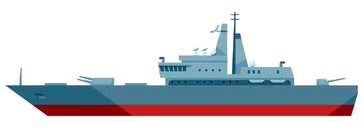
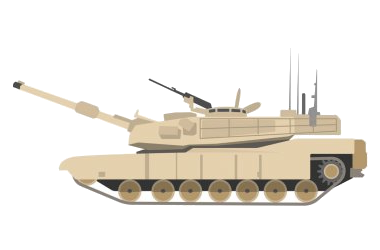
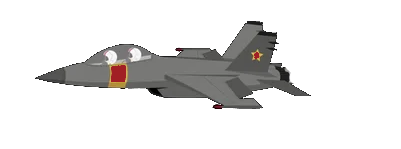
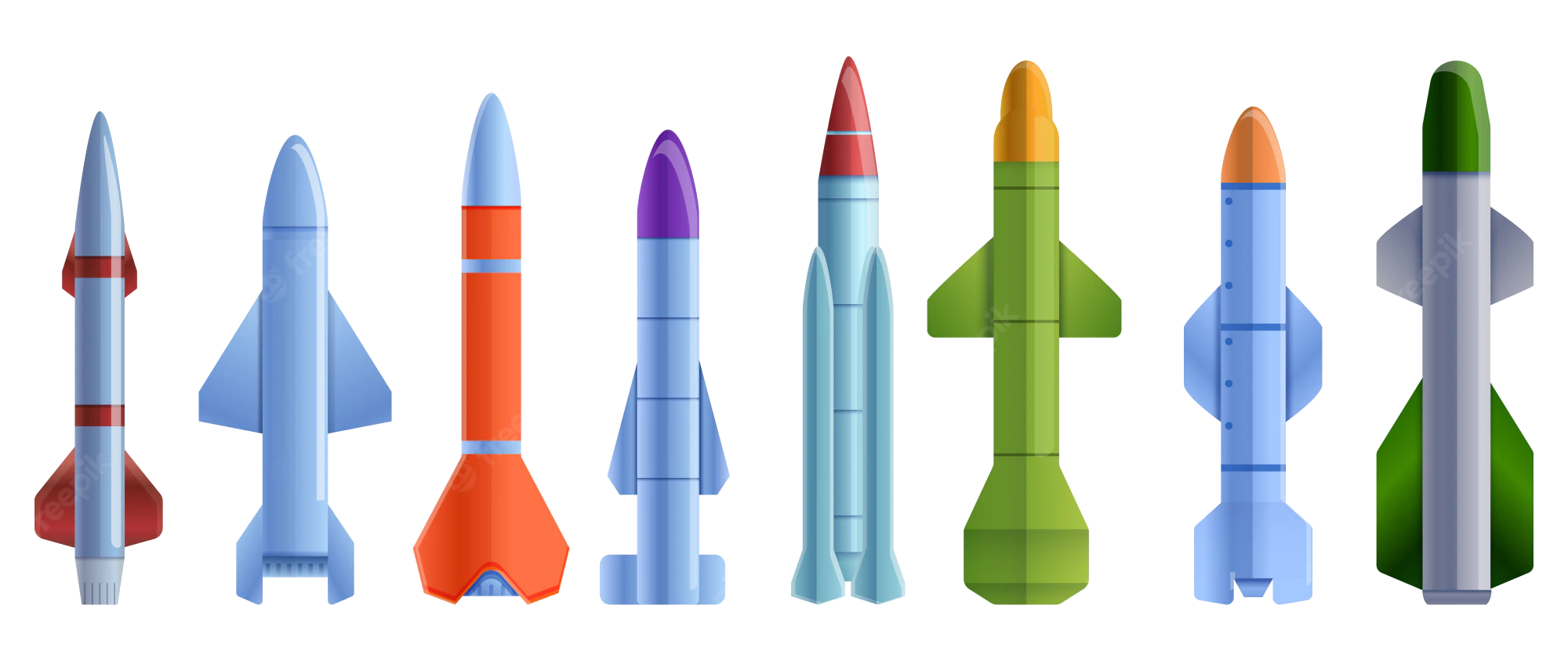 Military, defense and equipment
Military, defense and equipment
 Nuclear Weapon
Nuclear Weapon

 Mitglieder der NATO
Mitglieder der NATO

 Party and government
Party and government
 Group of the twenty most important industrial and emerging countries
Group of the twenty most important industrial and emerging countries

 Party and government
Party and government
 Group of Seven,G7
Group of Seven,G7

 States of Europe
States of Europe

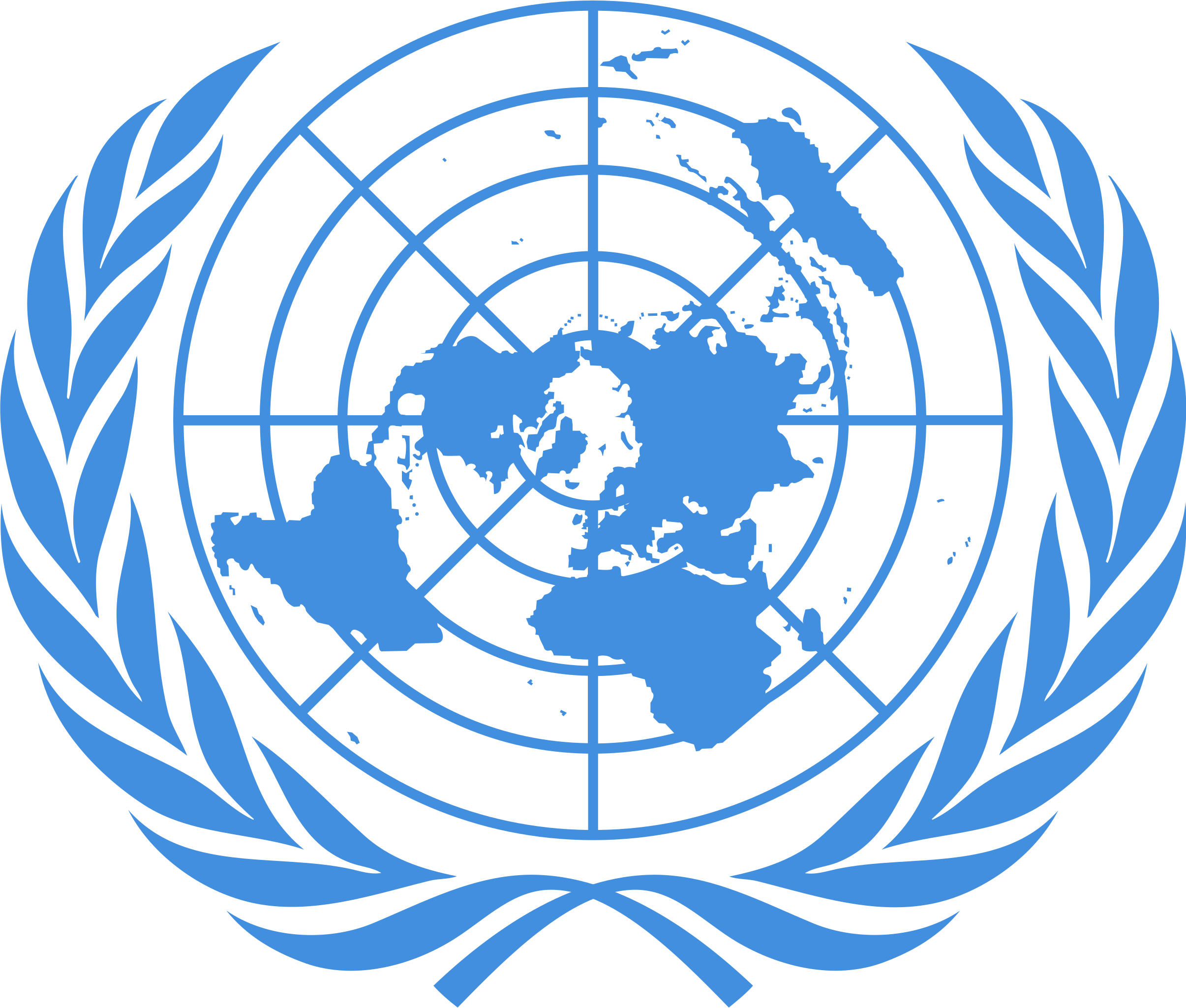 United Nations
United Nations
 United Nations Security Council
United Nations Security Council
 Hydrogen bomb
Hydrogen bomb

法兰西共和国(法语:République française [ʁepyblik fʁɑ̃sɛz]),通称法国(法语:France [fʁɑ̃s] ![]() 聆听),是本土位于西欧并具有海外大区及领地[注 16]的主权国家,自法兰西第五共和国建立以来实行单一制与半总统制,首都为欧洲大陆最大的文化与金融中心巴黎。该国本土由地中海一直延伸至英吉利海峡及北海,并由莱茵河一直延伸至大西洋,整体呈六角状。海外领土包括南美洲的法属圭亚那及分布于大西洋、太平洋和印度洋的诸岛屿。全国共分为18个大区,其中5个位于海外。法国与西班牙及摩洛哥为同时拥有地中海及大西洋海岸线的三个国家。法国的国土面积全球第四十一位,但却为欧盟及西欧国土面积最辽阔的国家,欧洲面积第三大国家。
聆听),是本土位于西欧并具有海外大区及领地[注 16]的主权国家,自法兰西第五共和国建立以来实行单一制与半总统制,首都为欧洲大陆最大的文化与金融中心巴黎。该国本土由地中海一直延伸至英吉利海峡及北海,并由莱茵河一直延伸至大西洋,整体呈六角状。海外领土包括南美洲的法属圭亚那及分布于大西洋、太平洋和印度洋的诸岛屿。全国共分为18个大区,其中5个位于海外。法国与西班牙及摩洛哥为同时拥有地中海及大西洋海岸线的三个国家。法国的国土面积全球第四十一位,但却为欧盟及西欧国土面积最辽阔的国家,欧洲面积第三大国家。
今日之法国本土于铁器时代由高卢人(凯尔特人的一支)征服,前51年又由罗马帝国吞并。486年法兰克人(日耳曼人的一支)又征服此地,其于该地域建立的早期国家最终发展成为法兰西王国。法国至中世纪末期起成为欧洲大国,国力于19-20世纪时达致巅峰,建立了世界第二大殖民帝国,亦为20世纪人口最稠密的国家[来源请求],现今则是众多前殖民地的首选移民国[8]。在漫长的历史中,法国培养了不少对人类发展影响深远的著名哲学家、文学家与科学家,亦为文化大国,具有第四多的世界遗产[9]。
法国在全球范围内政治、外交、军事与经济上为举足轻重的大国之一[10]。法国自1958年建立第五共和国后经济有了很大的发展,政局保持稳定,国家体制实行半总统制,国家经由普选产生的总统、由其委任的总理与相关内阁共同执政。1958年10月4日,由公投通过的国家宪法则保障了国民的民主权及宗教自由。法国的建国理念主要建基于在18世纪法国大革命中所制定的《人权和公民权宣言》,此乃人类史上较早的人权文档,并对推动欧洲以至于全球的民主与自由产生莫大的影响[11];其蓝白红三色的国旗则有“革命”的含义。法国不仅为联合国常任理事国,亦是欧盟始创国。该国国防预算金额为全球第5至6位,并拥有世界第三大核武贮备量[12]。法国为发达国家,其GDP为全球第七大经济体系,具备世界第十大购买力[13],并拥有全球第二大专属经济区[14];若以家庭总财富作计算,该国是欧洲最富有的国家,位列全球第四[15]。法国国民享有高生活质素,在教育、预期寿命、民主自由、人类发展等各方面均有出色的表现,特别是医疗研发与应用水平长期盘据世界首位[16][17]。Frankreich ![]() [ˈfʁaŋkʁaɪ̯ç] (französisch [fʁɑ̃s], amtlich République française [ʁe.py.ˈblik fʁɑ̃.ˈsɛz], deutsch Französische Republik) ist ein demokratischer, interkontinentaler Einheitsstaat in Westeuropa mit Überseeinseln und -gebieten auf mehreren Kontinenten. Metropolitan-Frankreich, d. h. der europäische Teil des Staatsgebietes, erstreckt sich vom Mittelmeer bis zum Ärmelkanal und zur Nordsee sowie vom Rhein bis zum Atlantischen Ozean. Sein Festland wird wegen seiner Landesform als Hexagone (Sechseck) bezeichnet. Frankreich ist flächenmäßig das größte und nach Einwohnern (hinter Deutschland) das zweitgrößte Land der Europäischen Union. Es umfasst (nach Russland und der Ukraine) das drittgrößte Staatsgebiet in Europa. Paris ist die Hauptstadt und als Agglomeration mit dem Gemeindeverband Métropole du Grand Paris und den umliegenden Gebieten der Region Île-de-France größter Ballungsraum des Landes vor Lyon, Marseille, Toulouse und Lille.
[ˈfʁaŋkʁaɪ̯ç] (französisch [fʁɑ̃s], amtlich République française [ʁe.py.ˈblik fʁɑ̃.ˈsɛz], deutsch Französische Republik) ist ein demokratischer, interkontinentaler Einheitsstaat in Westeuropa mit Überseeinseln und -gebieten auf mehreren Kontinenten. Metropolitan-Frankreich, d. h. der europäische Teil des Staatsgebietes, erstreckt sich vom Mittelmeer bis zum Ärmelkanal und zur Nordsee sowie vom Rhein bis zum Atlantischen Ozean. Sein Festland wird wegen seiner Landesform als Hexagone (Sechseck) bezeichnet. Frankreich ist flächenmäßig das größte und nach Einwohnern (hinter Deutschland) das zweitgrößte Land der Europäischen Union. Es umfasst (nach Russland und der Ukraine) das drittgrößte Staatsgebiet in Europa. Paris ist die Hauptstadt und als Agglomeration mit dem Gemeindeverband Métropole du Grand Paris und den umliegenden Gebieten der Region Île-de-France größter Ballungsraum des Landes vor Lyon, Marseille, Toulouse und Lille.
Im 17. und 18. Jahrhundert hatte Frankreich eine europäische Führungsrolle und Vormachtstellung inne. Bedeutend war die politische und kulturelle Ausstrahlung: Die Hofhaltung Ludwigs XIV. wurde zum Vorbild absolutistischer Staaten in ganz Europa und die Französische Revolution mit der Erklärung der Menschen- und Bürgerrechte gab zusammen mit Okkupationen durch Napoleon Bonaparte in vielen Ländern den Auftakt zu der immer wieder von Rückschlägen unterbrochenen Entwicklung zur Demokratie. In Übersee baute Frankreich zweimal ein Kolonialreich auf. Das erste umfasste u. a. große Teile Nordamerikas und ging großenteils Mitte des 18. Jahrhunderts im Siebenjährigen Krieg verloren; das zweite mit Schwerpunkt in Afrika war im 19. und frühen 20. Jahrhundert das zweitgrößte der Welt. Im 21. Jahrhundert gilt Frankreich mit Deutschland als treibende Kraft der europäischen Integration.
Die Französische Republik wird in ihrer Verfassung als unteilbar, laizistisch, demokratisch und sozial erklärt.[7] Ihr Grundsatz lautet: „Regierung des Volkes durch das Volk und für das Volk“. Frankreich steht auf Rang 26 des Index der menschlichen Entwicklung (2019) der Vereinten Nationen.[8] Gemessen am nominalen Bruttoinlandsprodukt ist es die sechstgrößte Volkswirtschaft der Welt.[5] Die Kaufkraft pro Einwohner betrug 2016 19.254 Euro (zum Vergleich: Deutschland 21.879 Euro, Großbritannien 21.141 Euro).[9] Lebensstandard, Bildungsgrad und durchschnittliche Lebenserwartung[10] gelten als hoch. Als meistbesuchtes Land der Welt empfängt Frankreich rund 83 Millionen ausländische Touristen pro Jahr.[11][12]
Frankreich unterhält die drittstärksten Streitkräfte innerhalb der NATO und das größte Heer der Europäischen Union. Es ist eines der fünf ständigen Mitglieder des UN-Sicherheitsrates und hatte 2010 als Atommacht die weltweit dritthöchste Anzahl an Kernwaffen.[13] Das Land ist Gründungsmitglied der Europäischen Union und der Vereinten Nationen, Mitglied der Frankophonie, der G7, der G20, der NATO, der Organisation für wirtschaftliche Zusammenarbeit und Entwicklung (OECD), der Welthandelsorganisation (WTO) und der Lateinischen Union.
フランス共和国(フランスきょうわこく、フランス語: République française、通称:フランス、France)は、西ヨーロッパ、カリブ、太平洋およびインド洋に位置する共和制国家。首都はパリ。
フランス・メトロポリテーヌ(本土)は地中海からイギリス海峡及び北海へ、ライン川から大西洋へと広がる。この他世界各地に海外地域および領土を有する。
なお、フランス・メトロポリテーヌ周辺は北東がドイツとベルギーとルクセンブルク、東をスイスとイタリア、南にスペインと国境を接している。
フランスは国際連合安全保障理事会常任理事国であり、G7・G20、欧州評議会、世界貿易機関、経済協力開発機構、北大西洋条約機構、パリクラブおよびフランコフォニー国際機関における主要なメンバーである。国際政治においてはこれらの理由から、政治・経済・文化において強力な影響を及ぼす列強の一角に数えられており、ヨーロッパにおける「ビッグ4」の1つでもある。
核拡散防止条約により核兵器の保有を認められた5つの公式核保有国の1つであり、その他にアメリカ合衆国を除けば世界で唯一の原子力空母「シャルル・ド・ゴール」や原子力潜水艦を保有しており、強力な軍事力を持っている。
GDPは名目GDP世界第7位かつ購買力平価で世界第10位・ユーロ圏ではドイツに次ぐ第2位の経済力を有する国であり、高い人間開発指数を持つ先進国として知られる。数多くの世界遺産を抱えており、世界で最も観光客の多い国の1つである。
歴史的にはデカルト、モンテスキュー、ルソー、サルトルといった哲学者やマリ・キュリー、パストゥールといった科学者、モネ、セザンヌ、ゴーギャン、クールベ、ドラクロワといった芸術家の故国もしくは活躍の舞台であり、また百年戦争やフランス革命、ナポレオン戦争といった歴史的事象の主要な舞台であった。
France (French: [fʁɑ̃s] ![]() ), officially the French Republic (French: République française),[1] is a transcontinental country spanning Western Europe and overseas regions and territories in the Americas and the Atlantic, Pacific and Indian Oceans.[XIII] Including all of its territories, France has twelve time zones, the most of any country. Its metropolitan area extends from the Rhine to the Atlantic Ocean and from the Mediterranean Sea to the English Channel and the North Sea; overseas territories include French Guiana in South America, Saint Pierre and Miquelon in the North Atlantic, the French West Indies, and several islands in Oceania and the Indian Ocean. Due to its several coastal territories, France has the largest exclusive economic zone in the world. France borders Belgium, Luxembourg, Germany, Switzerland, Monaco, Italy, Andorra and Spain in Europe, as well as the Netherlands, Suriname and Brazil in the Americas. Its eighteen integral regions (five of which are overseas) span a combined area of 643,801 km2 (248,573 sq mi) and over 67 million people (as of May 2021).[13] France is a unitary semi-presidential republic with its capital in Paris, the country's largest city and main cultural and commercial centre; other major urban areas include Lyon, Marseille, Toulouse, Bordeaux, Lille and Nice.
), officially the French Republic (French: République française),[1] is a transcontinental country spanning Western Europe and overseas regions and territories in the Americas and the Atlantic, Pacific and Indian Oceans.[XIII] Including all of its territories, France has twelve time zones, the most of any country. Its metropolitan area extends from the Rhine to the Atlantic Ocean and from the Mediterranean Sea to the English Channel and the North Sea; overseas territories include French Guiana in South America, Saint Pierre and Miquelon in the North Atlantic, the French West Indies, and several islands in Oceania and the Indian Ocean. Due to its several coastal territories, France has the largest exclusive economic zone in the world. France borders Belgium, Luxembourg, Germany, Switzerland, Monaco, Italy, Andorra and Spain in Europe, as well as the Netherlands, Suriname and Brazil in the Americas. Its eighteen integral regions (five of which are overseas) span a combined area of 643,801 km2 (248,573 sq mi) and over 67 million people (as of May 2021).[13] France is a unitary semi-presidential republic with its capital in Paris, the country's largest city and main cultural and commercial centre; other major urban areas include Lyon, Marseille, Toulouse, Bordeaux, Lille and Nice.
Inhabited since the Palaeolithic era, the territory of Metropolitan France was settled by Celtic tribes known as Gauls during the Iron Age. Rome annexed the area in 51 BC, leading to a distinct Gallo-Roman culture that laid the foundation of the French language. The Germanic Franks arrived in 476 and formed the Kingdom of Francia, which became the heartland of the Carolingian Empire. The Treaty of Verdun of 843 partitioned the empire, with West Francia becoming the Kingdom of France in 987.
In the High Middle Ages, France was a powerful but highly decentralised feudal kingdom in which the king's authority was barely felt. King Philip II achieved remarkable success in the strengthening of royal power and the expansion of his realm, defeating his rivals and doubling its size. By the end of his reign, the kingdom had emerged as the most powerful state in Europe. From the mid-14th to the mid-15th century, France was plunged into a series of dynastic conflicts for the French throne, collectively known as the Hundred Years' War, and a distinct French identity emerged as a result. The French Renaissance saw art and culture flourish, various wars with rival powers, and the establishment of a global colonial empire, which by the 20th century would become the second-largest in the world.[14] The second half of the 16th century was dominated by religious civil wars between Catholics and Huguenots that severely weakened the country. But France once again emerged as Europe's dominant cultural, political and military power in the 17th century under Louis XIV following the Thirty Years' War.[15] Inadequate economic policies, an inequitable taxation system as well as endless wars (notably a defeat in the Seven Years' War and costly involvement in the American War of Independence), left the kingdom in a precarious economic situation by the end of the 18th century. This precipitated the French Revolution of 1789, which overthrew the absolute monarchy, replaced the Ancien Régime with one of history's first modern republics and produced the Declaration of the Rights of Man and of the Citizen, which expresses the nation's ideals to this day.
France reached its political and military zenith in the early 19th century under Napoleon Bonaparte, subjugating much of continental Europe and establishing the First French Empire. The French Revolutionary and Napoleonic Wars shaped the course of European and world history. The collapse of the empire initiated a period of relative decline, in which France endured a tumultuous succession of governments until the founding of the French Third Republic during the Franco-Prussian War in 1870. Subsequent decades saw a period of optimism, cultural and scientific flourishing, as well as economic prosperity known as the Belle Époque. France was one of the major participants of World War I, from which it emerged victorious at great human and economic cost. It was among the Allied powers of World War II, but was soon occupied by the Axis in 1940. Following liberation in 1944, the short-lived Fourth Republic was established and later dissolved in the course of the Algerian War. The current Fifth Republic was formed in 1958 by Charles de Gaulle. Algeria and most French colonies became independent in the 1960s, with the majority retaining close economic and military ties with France.
France retains its centuries-long status as a global centre of art, science and philosophy. It hosts the fifth-largest number of UNESCO World Heritage Sites and is the world's leading tourist destination, receiving over 89 million foreign visitors in 2018.[16] France is a developed country with the world's seventh-largest economy by nominal GDP and ninth-largest by PPP; in terms of aggregate household wealth, it ranks fourth in the world.[17] France performs well in international rankings of education, health care, life expectancy and human development.[18][19] It remains a great power in global affairs,[20] being one of the five permanent members of the United Nations Security Council and an official nuclear-weapon state. France is a founding and leading member of the European Union and the Eurozone,[21] as well as a key member of the Group of Seven, North Atlantic Treaty Organization (NATO), Organisation for Economic Co-operation and Development (OECD) and La Francophonie.
La France (Écouter), en forme longue depuis 1875 la République française (Écouter), est un État souverain transcontinental dont le territoire métropolitain est situé en Europe de l'Ouest et dont le territoire ultramarin est situé dans les océans Indien, Atlantique et Pacifique ainsi qu'en Amérique du Sud. Il s'agit de l'unique pays au monde à s'étendre sur treize fuseaux horaires. Le pays a des frontières terrestres avec la Belgique, le Luxembourg, l'Allemagne, la Suisse, l'Italie, l'Espagne et les deux principautés d'Andorre et de Monaco en Europe, auxquelles s'ajoutent les frontières terrestres avec le Brésil, le Suriname et les Pays-Bas aux Amériques. La France dispose d'importantes façades maritimes sur l'Atlantique, la Méditerranée, le Pacifique et l'océan Indien, lui permettant de bénéficier de la plus vaste zone économique exclusive du monde6.
La France est une république constitutionnelle unitaire ayant un régime semi-présidentiel. La devise de la République est depuis 1875 « Liberté, Égalité, Fraternité » et son drapeau est constitué des trois couleurs nationales : bleu, blanc, rouge. Son hymne national est La Marseillaise, chant patriotique hérité de la Révolution française. Son principe constitutif est la démocratie : le « gouvernement du peuple, par le peuple et pour le peuple ». Elle a pour capitale Paris et pour langue officielle le français depuis 1539, remplaçant le latin. Ses monnaies sont l'euro depuis 2002 dans la majeure partie du pays et le franc Pacifique dans ses territoires de l'océan Pacifique.
La France s'appelle ainsi depuis 1214, lorsque les troupes du roi Philippe Auguste battent celles de l’empereur germanique à Bouvines. La France tire son nom des Francs, peuple germanique qui a institué les premiers fondements de son État sur les bases de la Gaule romaine. C'est au fil des siècles, par des guerres, des mariages politiques et des unions souveraines, que cet État monarchique et catholique va peu à peu constituer autour de lui une véritable fédération de provinces, qui finira par se cristalliser en une nation unique sous l’effet d’une politique d'uniformisation administrative et culturelle, portée à son aboutissement par la Révolution française et la fin du régime féodal.
Du milieu du XVIe siècle au milieu du XXe siècle, elle possède un vaste empire colonial. À partir des années 1950, elle est l'un des acteurs de la construction de l'Union européenne. Deuxième armée européenne derrière la Russie, quatrième puissance nucléaire et spatiale mondiale7,8, cinquième puissance militaire mondiale9, l'un des cinq membres permanents du Conseil de sécurité des Nations unies et membre de l'OTAN, la France est également membre du G7, du G20, du Conseil de l'Europe, de la zone euro, de l'espace Schengen, de la commission de l'océan Indien, de la communauté du Pacifique, et abrite le siège de plusieurs organisations internationales dont le Conseil de l'Europe, l'UNESCO, l'OCDE, Interpol, le Centre International de Recherche sur le Cancer. Elle exerce ainsi une influence notable en matière politique, économique, militaire et culturelle, en Europe et dans le reste du monde, elle est classée en 2019 au premier rang mondial de l'indice Soft Power 30 grâce à sa vaste portée diplomatique, sa richesse culturelle et à la forte maîtrise internationale du président de la République10.
Seul pays au monde à exercer sa souveraineté sur des territoires répartis sur quatre océans et deux continents11,N 7, elle joue un important rôle géopolitique au niveau mondial, grâce à un réseau d'ambassades et de consulats étendu, le deuxième au monde derrière celui des États-Unis, et elle dispose de bases militaires sur tous les continents et de la troisième puissance nucléaire militaire mondiale. Du fait de son territoire étendu et réparti sur l'ensemble de la planète, la France est de surcroît un des premiers pays du monde pour la variété de ses milieux maritimes et leur biodiversité12.
La France est, avec un PIB nominal de 2 938 milliards de dollars US en 2021 selon le FMI, la troisième économie européenne derrière l'Allemagne et le Royaume-Uni, ainsi que la septième économie mondiale13. Malgré un taux de chômage de 8 % (juin 2021), elle affiche un niveau de vie « très élevé » (24e au classement IDH en 2018). Elle figure parmi les chefs de file mondiaux dans les secteurs de l'agroalimentaire, de l'aéronautique, de l'automobile, du tourisme, du nucléaire, leader mondial dans le secteur du luxe. Au 1er janvier 2018, la population de la France est d'environ 67,8 millions d'habitants, selon les estimations publiées par l'Insee : 65 018 000 dans les régions métropolitaines, 2 169 000 dans les régions ultramarines et 608 200 dans les collectivités d'outre-mer et en Nouvelle-Calédonie.
L'un des pays les plus peuplés d'EuropeN 8 (très proche du Royaume-Uni, elle n'est devancée nettement que par l'Allemagne)14, la France est le plus vaste pays de l'Union européenne et le troisième pays le plus vaste d'Europe15. Sa culture et sa civilisation sont diffusées par les pays francophones à travers le monde, réunis dans l'Organisation internationale de la francophonie. Traditionnellement utilisé comme langue de la diplomatie, le français est la dixième langue maternelle la plus parlée au monde, la cinquième langue la plus parlée en nombre total de locuteurs, et une des langues ayant la plus grande diffusion internationale. Il est une des six langues officielles et une des deux langues de travail (avec l'anglais) de l'Organisation des Nations unies, l'une des deux langues officielles du Comité international olympique, et langue officielle ou de travail de plusieurs organisations internationales ou régionales. Le français est également l'une des trois langues de travail de l'Union européenne, avec l'allemand et l'anglais.
La Francia (/ˈfranʧa/[11]; in francese: France, /fʁɑ̃s/), ufficialmente Repubblica francese (in francese: République française), è uno Stato principalmente situato nell'Europa occidentale[12], ma che possiede ugualmente territori disseminati su più oceani e altri continenti. La Francia è una repubblica costituzionale unitaria avente un regime semipresidenziale. Parigi è la capitale, la lingua ufficiale è il francese, le monete ufficiali sono l'euro e il franco Pacifico nei territori dell'oceano Pacifico. Il motto della Francia è «Liberté, Égalité, Fraternité », e la sua bandiera è costituita da tre bande verticali di uguali dimensioni di colore blu, bianco e rosso[13]. L'inno nazionale è La Marsigliese.
È uno stato formatosi all'inizio dell'Alto Medioevo, che prende il suo nome dal popolo dei Franchi. Dall'inizio del XVII secolo alla prima metà del XX secolo, ha posseduto un vasto impero coloniale. Nella seconda metà del secolo è stata uno degli stati fondatori dell'Unione Europea. Inoltre è la terza potenza nucleare mondiale, uno dei membri permanenti del Consiglio di sicurezza delle Nazioni unite ed uno stato aderente all'NATO. Ugualmente è membro del G7, del G20, della zona euro, dello Spazio Schengen ed ospita la sede del Consiglio d'Europa, del Parlamento europeo e dell'UNESCO. La Francia possiede una certa influenza in materia politica, economica, militare e culturale in Europa e nel mondo come media potenza[14][15][16].
Esercita la sua sovranità su territori presenti su tre oceani e quattro continenti[17]. La sua geopolitica è importante a livello mondiale, perché possiede un gran numero di ambasciate e consolati, secondo solo agli Stati Uniti d'America, e dispone di basi militari su tutti i continenti. La Francia detiene la prima zona economica esclusiva (spazio marittimo) al mondo, al quale si aggiunge un'estensione piattaforma continentale di 579 000 km² nel 2015[18].
È, nel 2014, la terza potenza economica europea dopo la Germania e il Regno Unito, e la sesta potenza economica mondiale per prodotto interno lordo nominale (nona a parità di potere d'acquisto), e possiede un livello di vita molto elevato. Il 1º gennaio 2016 la popolazione totale della Francia è di circa 67,2 milioni d'abitanti, secondo le stime pubblicate dall'INSEE, di cui 64 513 000 nelle regioni metropolitane, 2 114 000 nelle regioni ultramarine e 604 400 nelle collettività d'oltre mare e in Nuova Caledonia. È il secondo stato più popolato dell'Unione europea dopo la Germania. Inoltre è anche lo stato più esteso dell'Unione europea e il terzo paese più vasto d'Europa[19]. Antica potenza coloniale, la sua cultura si è diffusa attraverso il mondo ed è oggi membro dell'Organizzazione internazionale della francofonia. Il francese è la seconda lingua più studiata al mondo ed è una delle sei lingue ufficiali dell'Organizzazione delle Nazioni Unite.
Francia (en francés, France, pronunciado /fʁɑ̃s/ (![]() escuchar)), oficialmente la República Francesa (en francés, République française pronunciado /ʁepyblik fʁɑ̃sɛːz/ (
escuchar)), oficialmente la República Francesa (en francés, République française pronunciado /ʁepyblik fʁɑ̃sɛːz/ (![]() escuchar)), es un país transcontinental, miembro de la Unión Europea, cuya forma de gobierno es la república semipresidencialista. Territorialmente comprende la Francia metropolitana y la Francia de ultramar, siendo a su vez el país más grande de la Unión Europea.7 Su territorio, que incluye regiones de ultramar o Territorios dependientes, se extiende sobre una superficie total de 675 417 km².1 En 2017 el país contaba con 67,1 millones de habitantes (65 millones en los departamentos metropolitanos y 2,1 millones en los departamentos de ultramar).8
escuchar)), es un país transcontinental, miembro de la Unión Europea, cuya forma de gobierno es la república semipresidencialista. Territorialmente comprende la Francia metropolitana y la Francia de ultramar, siendo a su vez el país más grande de la Unión Europea.7 Su territorio, que incluye regiones de ultramar o Territorios dependientes, se extiende sobre una superficie total de 675 417 km².1 En 2017 el país contaba con 67,1 millones de habitantes (65 millones en los departamentos metropolitanos y 2,1 millones en los departamentos de ultramar).8
La parte metropolitana del país9 se ubica en Europa Occidental, donde limita al sur con el mar Mediterráneo, Mónaco, España y Andorra; al oeste el océano Atlántico; al norte con el canal de la Mancha que la separa del Reino Unido y en su parte este hace frontera con Bélgica, Luxemburgo, Alemania, Suiza e Italia. El territorio insular europeo comprende la isla mediterránea de Córcega y diversos archipiélagos costeros en el océano Atlántico. En América, son territorios franceses la Guayana Francesa, la mayor parte de la isla San Martín y las islas y archipiélagos de Martinica, Guadalupe, San Bartolomé y San Pedro y Miquelón. En el océano Índico, son territorios franceses también las islas de Mayotte y de Reunión, y en el océano Pacífico los archipiélagos de la Polinesia francesa, Wallis y Futuna y Nueva Caledonia, el atolón de isla Clipperton, en el océano Pacífico oriental, y las Tierras Australes francesas (Kerguelen y varias otras en el océano Índico sur, como las islas Dispersas) y las denominadas Tierras Antárticas francesas (Tierra Adelia y Base Dumont D'Urville en la Antártida). A nivel mundial es el segundo país con mayor extensión de mar territorial (11 millones de km²).10
Francia es la sexta economía mundial (2018) con una muy elevada difusión cultural en el contexto internacional. Es miembro del G7, de la zona euro y del espacio Schengen, y alberga a muchas de las más importantes empresas multinacionales, líderes en diversos segmentos de la industria y del sector primario, además de que es el primer destino turístico mundial, con 83 millones de visitantes extranjeros por año (7 % del PIB).11 Francia es un país desarrollado que se posiciona en lugares altos dentro de escalafones internacionales. Es allí donde se redactó la Declaración de los Derechos del Hombre y del Ciudadano de 1789, es miembro fundador de la Organización de las Naciones Unidas y uno de los cinco miembros permanentes de su Consejo de Seguridad.12 Francia alberga las sedes del Consejo de Europa y del Parlamento Europeo, ambas en Estrasburgo, y las de la Organización para la Cooperación y el Desarrollo Económico y de la Unesco, en París. Perteneciente a la OTAN, Francia es una de las ocho potencias nucleares reconocidas13 y una de las potencias mundiales.14
Desde el siglo XVI, el país fue una potencia colonial, y durante mucho tiempo el idioma francés fue la principal lengua de la diplomacia. Aún hoy, es una de las lenguas con mayor proyección, y la cultura y la civilización francesas forman el nexo de unión de los países de la francofonía. En 2018, la lengua francesa, con 284,9 millones de hablantes, era la quinta más hablada del mundo15 y por las tendencias demográficas en el siglo XXI se convertiría en la tercera lengua más hablada del mundo.1617 Lingüística y culturalmente, Francia pertenece a la Europa Latina.
Фра́нция (фр. France, [fʁɑ̃s] ![]() слушать), официальное название — Францу́зская Респу́блика[11] (фр. République française, [ʁe.py.blik fʁɑ̃.sɛz]
слушать), официальное название — Францу́зская Респу́блика[11] (фр. République française, [ʁe.py.blik fʁɑ̃.sɛz] ![]() слушать), — трансконтинентальное государство, включающее основную территорию в Западной Европе и ряд заморских регионов и территорий. Столица — Париж. Девиз Республики — «Свобода, равенство, братство», её принцип — правление народа, народом и для народа[12].
слушать), — трансконтинентальное государство, включающее основную территорию в Западной Европе и ряд заморских регионов и территорий. Столица — Париж. Девиз Республики — «Свобода, равенство, братство», её принцип — правление народа, народом и для народа[12].
Название страны происходит от этнонима древнегерманского племени франков. Большинство населения Франции имеет смешанное галло-романское происхождение и говорит на языке романской группы.
Население — 62 814 233 человек в метрополии и 67 848 156 человек — с учётом заморских владений (оценка на 1 июля 2020)[4], в том числе около 90 % — граждане Франции. Состав населения Франции по вероисповеданию по состоянию на 2019 год: католики — 41 %, иррелигиозны — 40 %, мусульмане — 5 %, другие религии — 5 %, лютеране — 2 %, православные — 2 %, другие христиане — 2 %, буддисты — 1 % , иудеи — 1 %, нет данных — 1 %.[13]
Франция является ядерной державой, членом НАТО и одним из пяти постоянных членов Совета Безопасности ООН. С 1950-х годов — одно из государств, участвующих в создании Европейского союза.
Законодательный орган — двухпалатный парламент (Сенат и Национальное собрание). Административно-территориальное деление: 18 регионов (13 в метрополии и 5 заморских регионов), включающих 101 департамент (96 в метрополии и 5 заморских департаментов)[14], 5 заморских сообществ и 3 административно-территориальных образования с особым статусом.
 Abdullah II.
Abdullah II.
 African Development Bank
African Development Bank
 Ajaypal Singh Banga
Ajaypal Singh Banga
 António Guterres
António Guterres
 Charles Michel
Charles Michel
 Emmanuel Macron
Emmanuel Macron
 Fumio Kishida
Fumio Kishida
 Giorgia Meloni
Giorgia Meloni

 Hand in Hand
Hand in Hand
 Italy
Italy
 Javier Milei
Javier Milei
 Joe Biden
Joe Biden
 Justin Trudeau
Justin Trudeau
 Kristalina Georgiewa
Kristalina Georgiewa
 Luiz Inácio Lula da Silva
Luiz Inácio Lula da Silva
 Mohamed bin Zayed Al Nahyan
Mohamed bin Zayed Al Nahyan
 Narendra Modi
Narendra Modi
 OECD
OECD
 OECD
OECD
 Mathias Cormann
Mathias Cormann
 Olaf Scholz
Olaf Scholz
 Papst Franziskus I
Papst Franziskus I

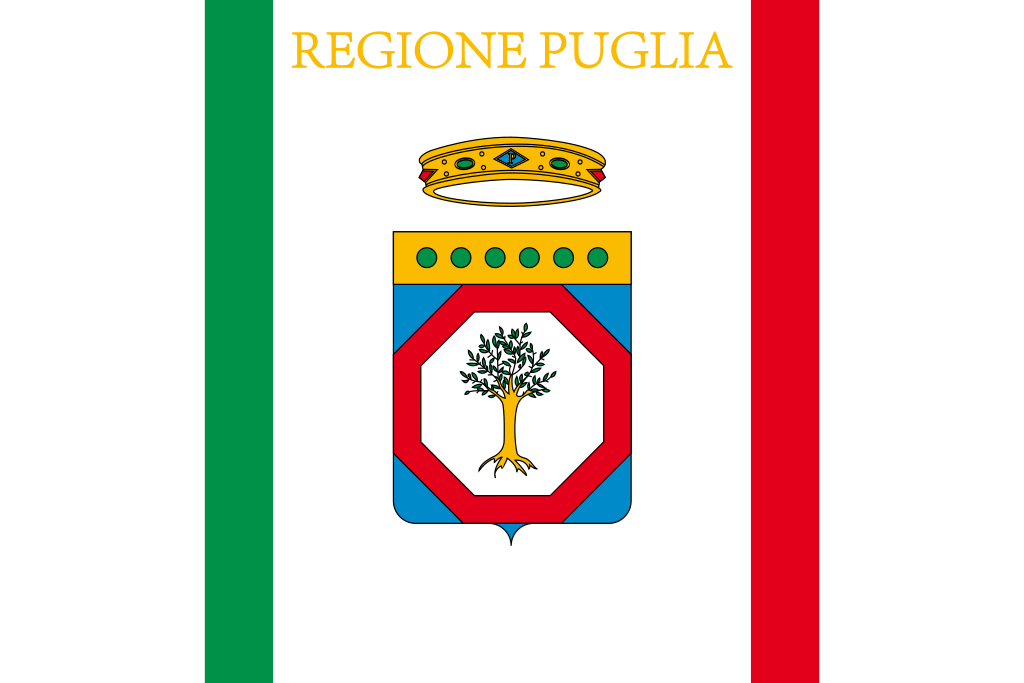 Puglia
Puglia
 Recep Tayyip Erdoğan
Recep Tayyip Erdoğan
 Rishi Sunak
Rishi Sunak
 Ursula von der Leyen
Ursula von der Leyen
 Wolodymyr Selenskyj
Wolodymyr Selenskyj


2024 年 1 月 1 日,意大利将第七次担任七国集团主席国,该集团由意大利、加拿大、法国、德国、日本、英国和美利坚合众国组成。七国集团(G7)也包括欧洲联盟,因共同的价值观和原则而团结在一起,在捍卫自由和民主以及应对全球挑战方面发挥着不可估量的作用。
Am 1. Januar 2024 übernimmt Italien zum siebten Mal den Vorsitz der G7, der Gruppe, die Italien, Kanada, Frankreich, Deutschland, Japan, das Vereinigte Königreich und die Vereinigten Staaten von Amerika umfasst. Die G7, an der auch die Europäische Union beteiligt ist, ist durch gemeinsame Werte und Grundsätze geeint und spielt eine unschätzbare Rolle bei der Verteidigung von Freiheit und Demokratie und der Bewältigung globaler Herausforderungen.
 Abe Shinzō
Abe Shinzō
 Angela Merkel
Angela Merkel
 Barack Obama
Barack Obama

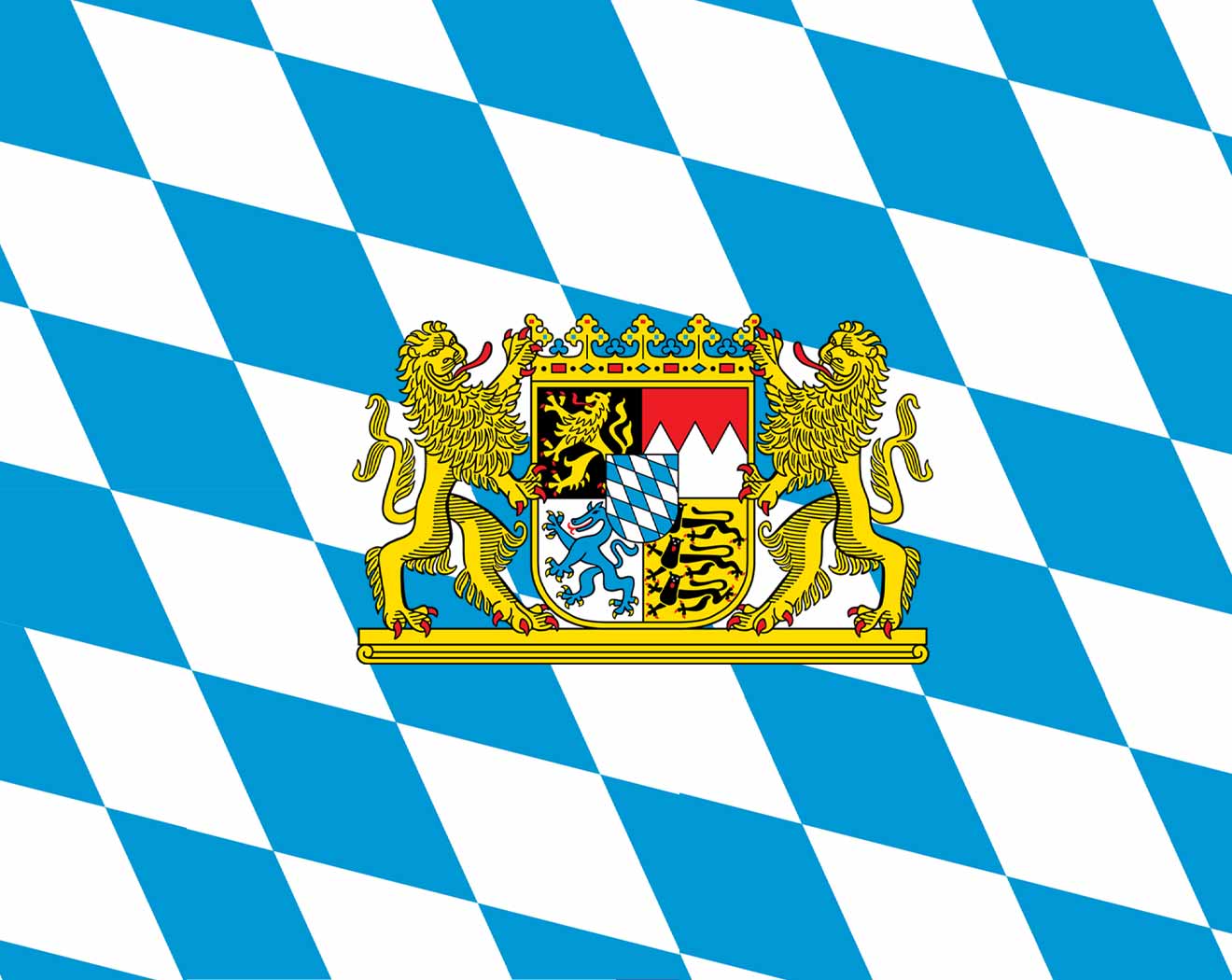 Bavaria
Bavaria
 David Cameron
David Cameron
 Germany
Germany
 Donald Tusk
Donald Tusk

 European Union
European Union
 François Hollande
François Hollande
 France
France

 Hand in Hand
Hand in Hand
 Italy
Italy
 Japan
Japan
 Jean-Claude Juncker
Jean-Claude Juncker
 Canada
Canada
 Matteo Renzi
Matteo Renzi
 Stephen Joseph Harper
Stephen Joseph Harper
 United States
United States
 United Kingdom
United Kingdom


 Alberto Ángel Fernández
Alberto Ángel Fernández
 Boris Johnson
Boris Johnson
 Charles Michel
Charles Michel
 Cyril Ramaphosa
Cyril Ramaphosa
 Germany
Germany
 Emmanuel Macron
Emmanuel Macron

 European Union
European Union
 France
France
 Fumio Kishida
Fumio Kishida

 Hand in Hand
Hand in Hand
 Italy
Italy
 Japan
Japan
 Joe Biden
Joe Biden
 Joko Widodo
Joko Widodo
 Justin Trudeau
Justin Trudeau
 Canada
Canada
 Macky Sall
Macky Sall
 Mario Draghi
Mario Draghi
 Narendra Modi
Narendra Modi
 Olaf Scholz
Olaf Scholz
 Ursula von der Leyen
Ursula von der Leyen
 United States
United States
 United Kingdom
United Kingdom
 Wolodymyr Selenskyj
Wolodymyr Selenskyj

 Angela Merkel
Angela Merkel
 Boris Johnson
Boris Johnson
 Charles Michel
Charles Michel
 Germany
Germany
 Emmanuel Macron
Emmanuel Macron
 England
England

 European Union
European Union
 France
France

 Hand in Hand
Hand in Hand
 Italy
Italy
 Japan
Japan
 Joe Biden
Joe Biden
 Justin Trudeau
Justin Trudeau
 Canada
Canada
 Mario Draghi
Mario Draghi
 Ursula von der Leyen
Ursula von der Leyen
 United States
United States
 United Kingdom
United Kingdom
 Yoshihide Suga
Yoshihide Suga


 Anthony Albanese
Anthony Albanese
 Azali Assoumani
Azali Assoumani
 Charles Michel
Charles Michel
 Chūgoku
Chūgoku
 Emmanuel Macron
Emmanuel Macron
 Fumio Kishida
Fumio Kishida
 Giorgia Meloni
Giorgia Meloni

 Hand in Hand
Hand in Hand
 Japan
Japan
 Joe Biden
Joe Biden
 Joko Widodo
Joko Widodo
 Justin Trudeau
Justin Trudeau
 Luiz Inácio Lula da Silva
Luiz Inácio Lula da Silva
 Mark Brown
Mark Brown
 Narendra Modi
Narendra Modi
 Olaf Scholz
Olaf Scholz
 Phạm Minh Chính
Phạm Minh Chính
 Rishi Sunak
Rishi Sunak
 Ursula von der Leyen
Ursula von der Leyen
 Wolodymyr Selenskyj
Wolodymyr Selenskyj
 Yoon Suk-yeol
Yoon Suk-yeol
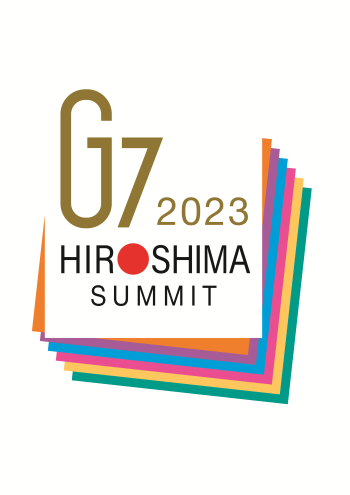



 Abe Shinzō
Abe Shinzō
 Angela Merkel
Angela Merkel
 Boris Johnson
Boris Johnson
 Germany
Germany
 Donald Trump
Donald Trump
 Donald Tusk
Donald Tusk
 Emmanuel Macron
Emmanuel Macron
 France
France
 Giuseppe Conte
Giuseppe Conte

 Hand in Hand
Hand in Hand
 Italy
Italy
 Japan
Japan
 Justin Trudeau
Justin Trudeau
 Canada
Canada

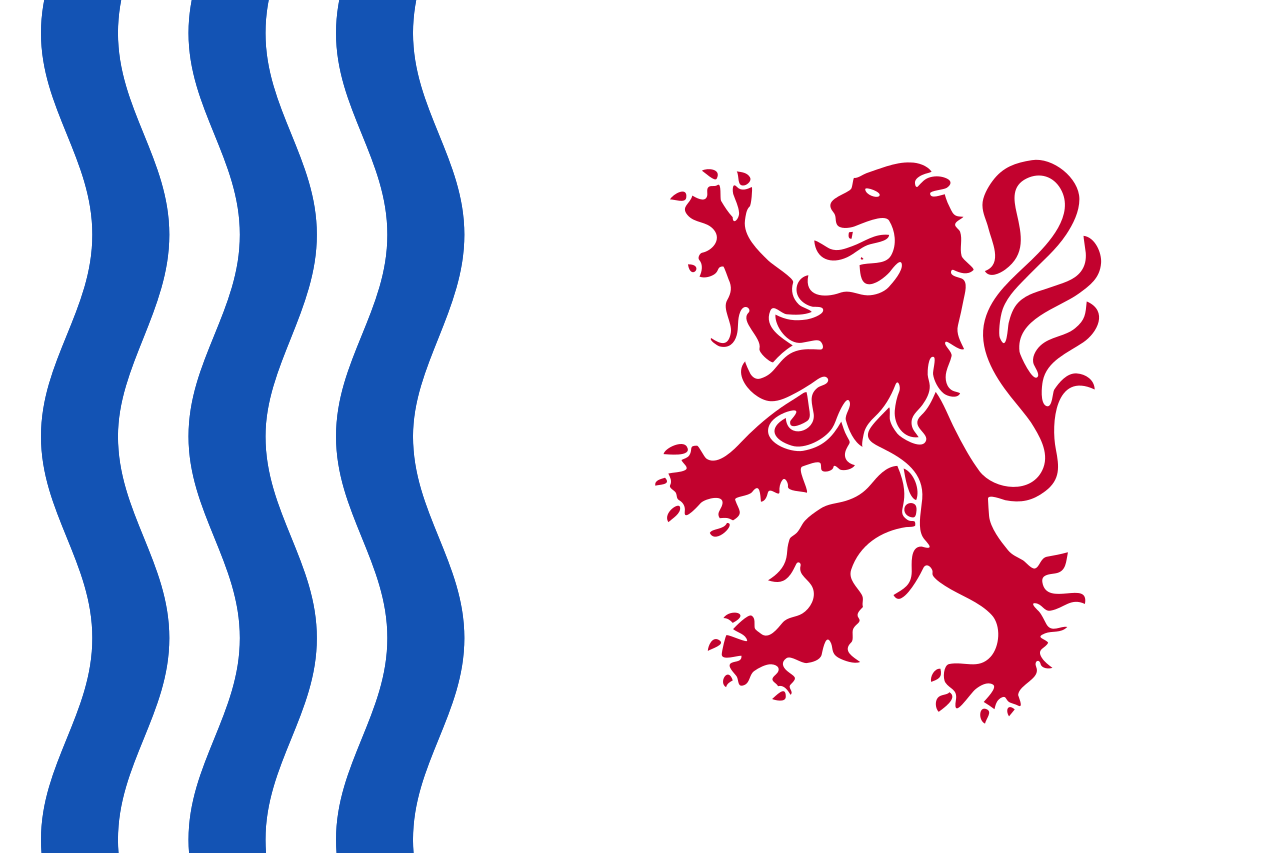 Nouvelle-Aquitaine
Nouvelle-Aquitaine
 United States
United States
 United Kingdom
United Kingdom
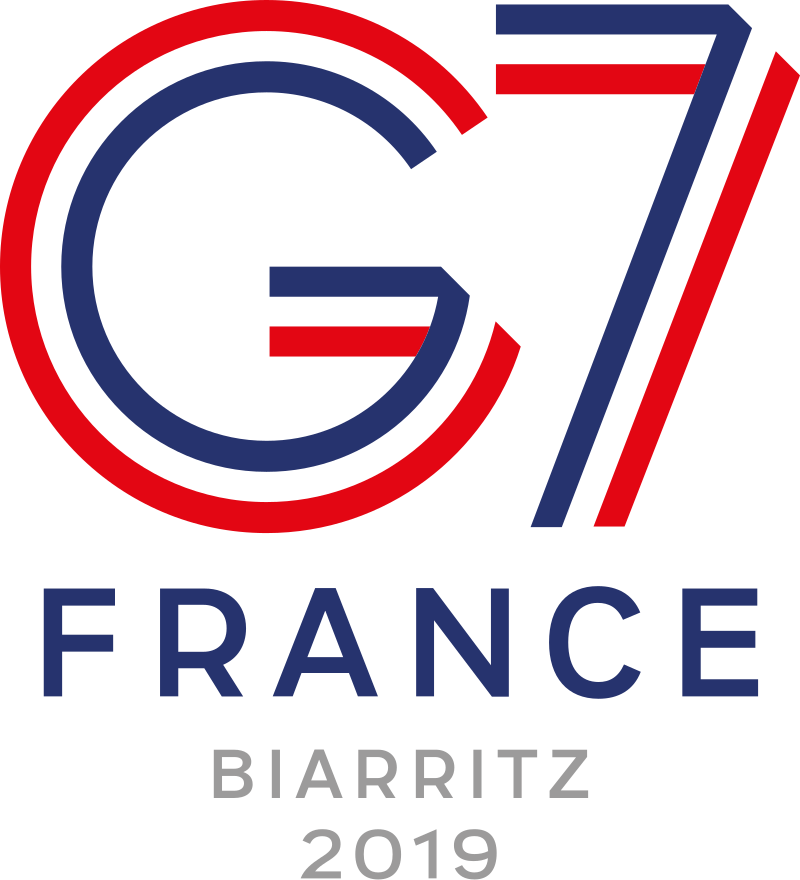

 Abe Shinzō
Abe Shinzō
 Angela Merkel
Angela Merkel
 Barack Obama
Barack Obama
 Belgium
Belgium
 David Cameron
David Cameron
 Germany
Germany

 European Union
European Union
 François Hollande
François Hollande
 France
France

 Hand in Hand
Hand in Hand
 Herman Van Rompuy
Herman Van Rompuy
 Italy
Italy
 Japan
Japan
 José Manuel Barroso
José Manuel Barroso
 Canada
Canada
 Matteo Renzi
Matteo Renzi
 Stephen Joseph Harper
Stephen Joseph Harper
 United States
United States
 United Kingdom
United Kingdom


 Abe Shinzō
Abe Shinzō
 Angela Merkel
Angela Merkel
 Barack Obama
Barack Obama
 David Cameron
David Cameron
 Germany
Germany
 Donald Tusk
Donald Tusk

 European Union
European Union
 François Hollande
François Hollande
 France
France

 Hand in Hand
Hand in Hand
 Italy
Italy
 Japan
Japan
 Jean-Claude Juncker
Jean-Claude Juncker
 Justin Trudeau
Justin Trudeau
 Canada
Canada
 Kinki
Kinki
 Matteo Renzi
Matteo Renzi
 United States
United States
 United Kingdom
United Kingdom


